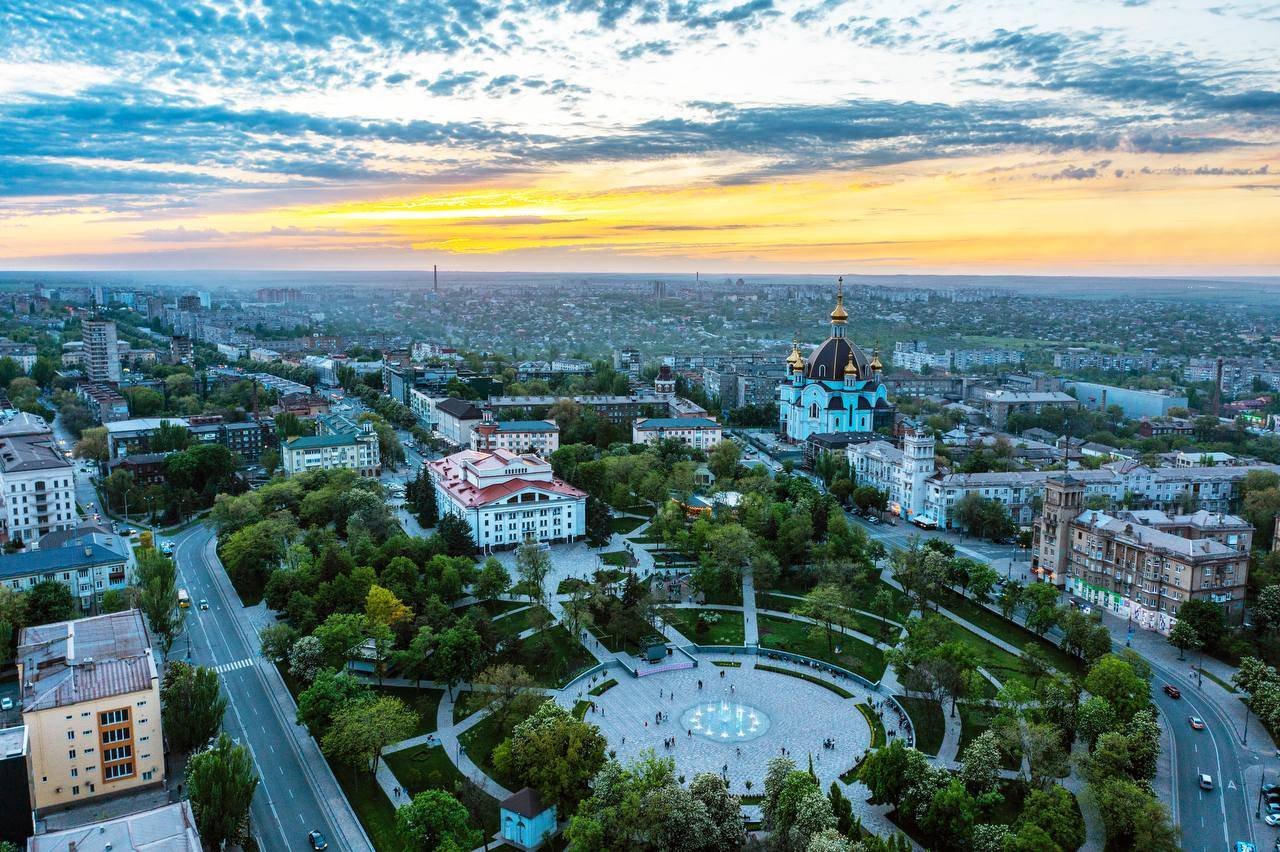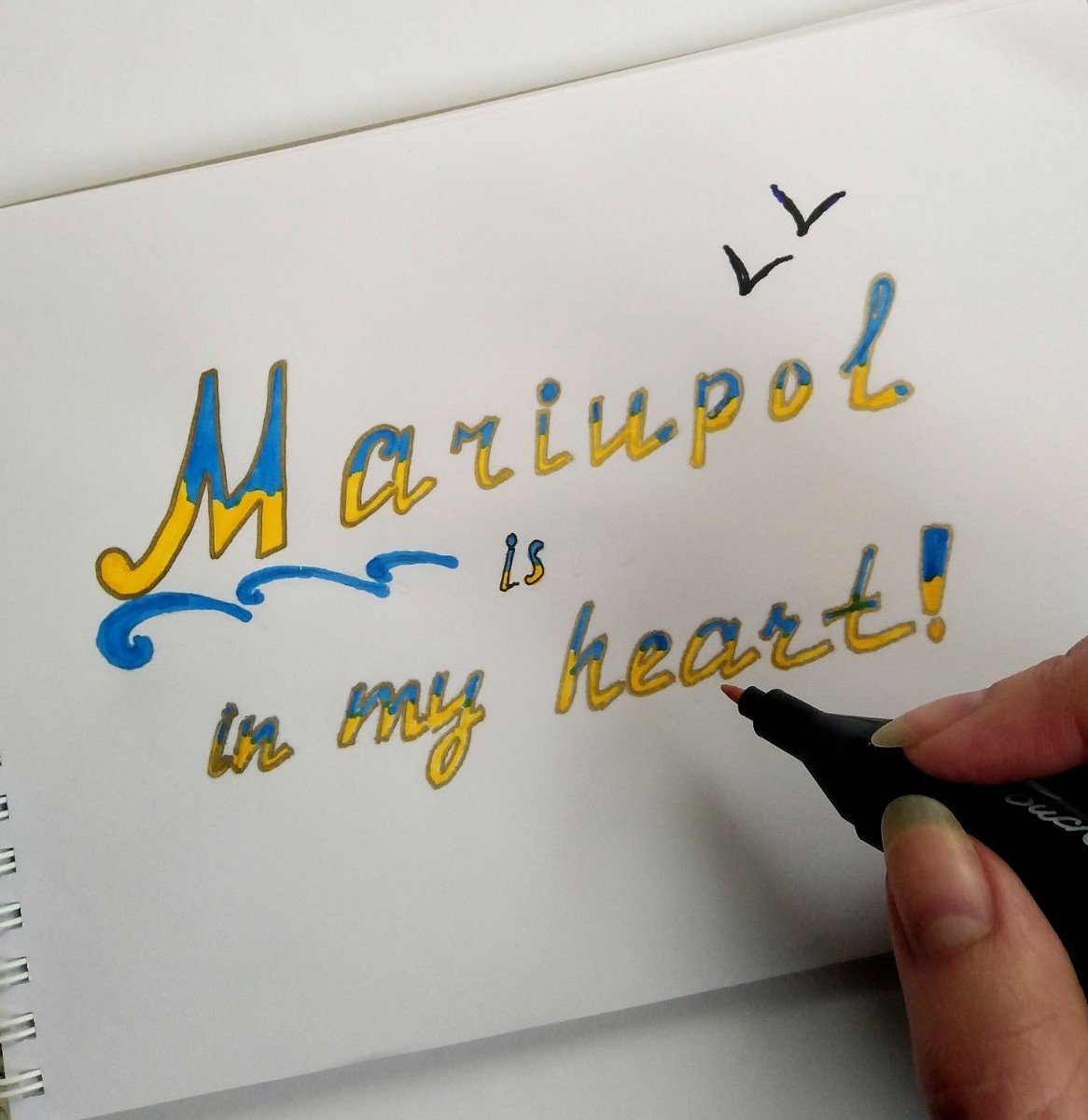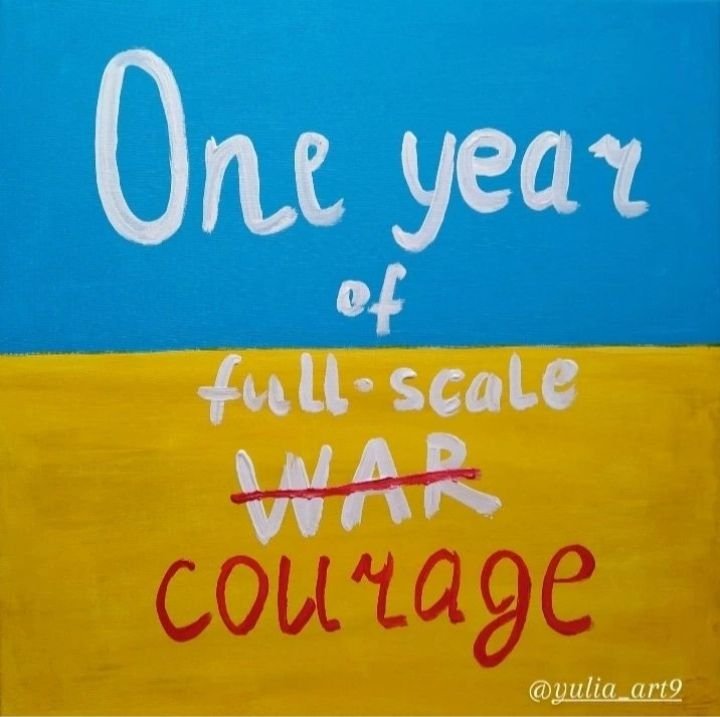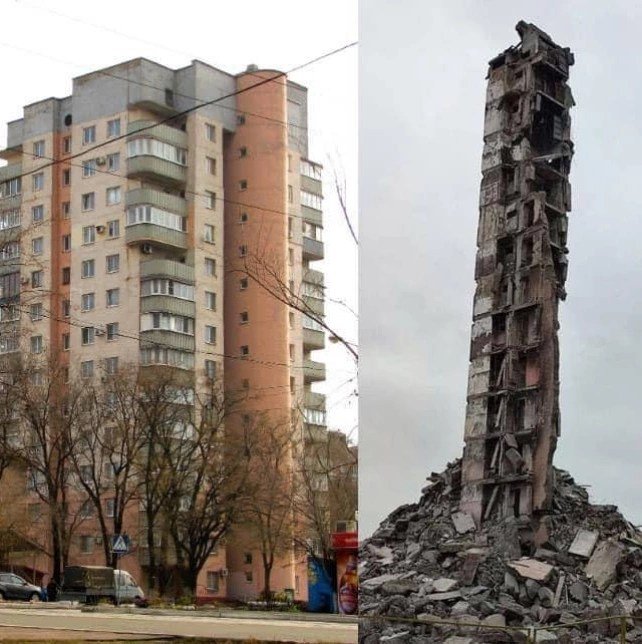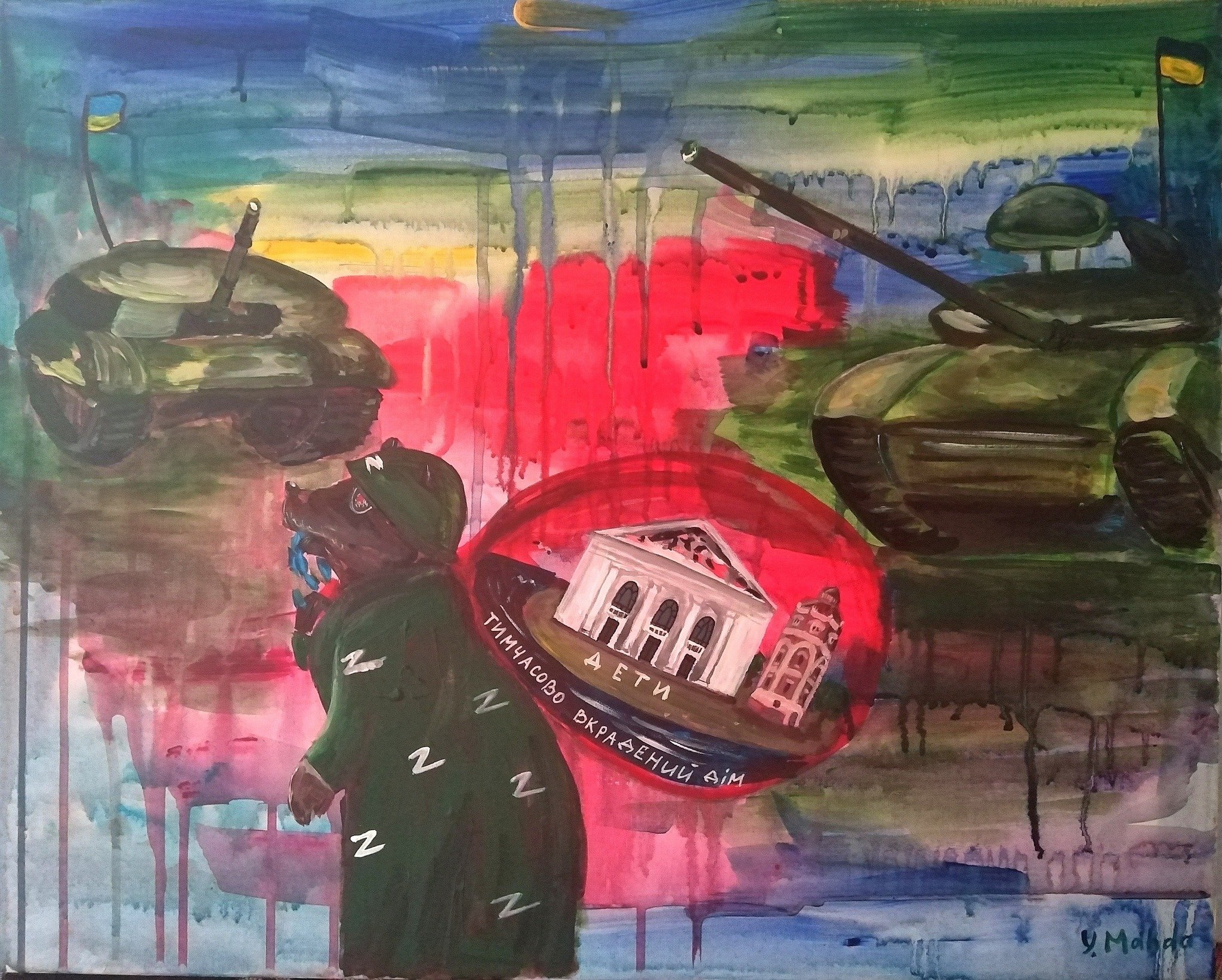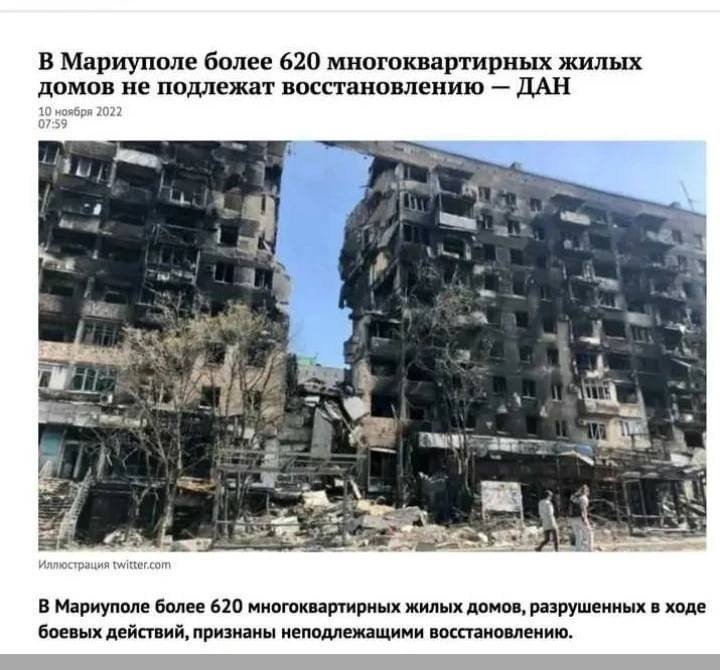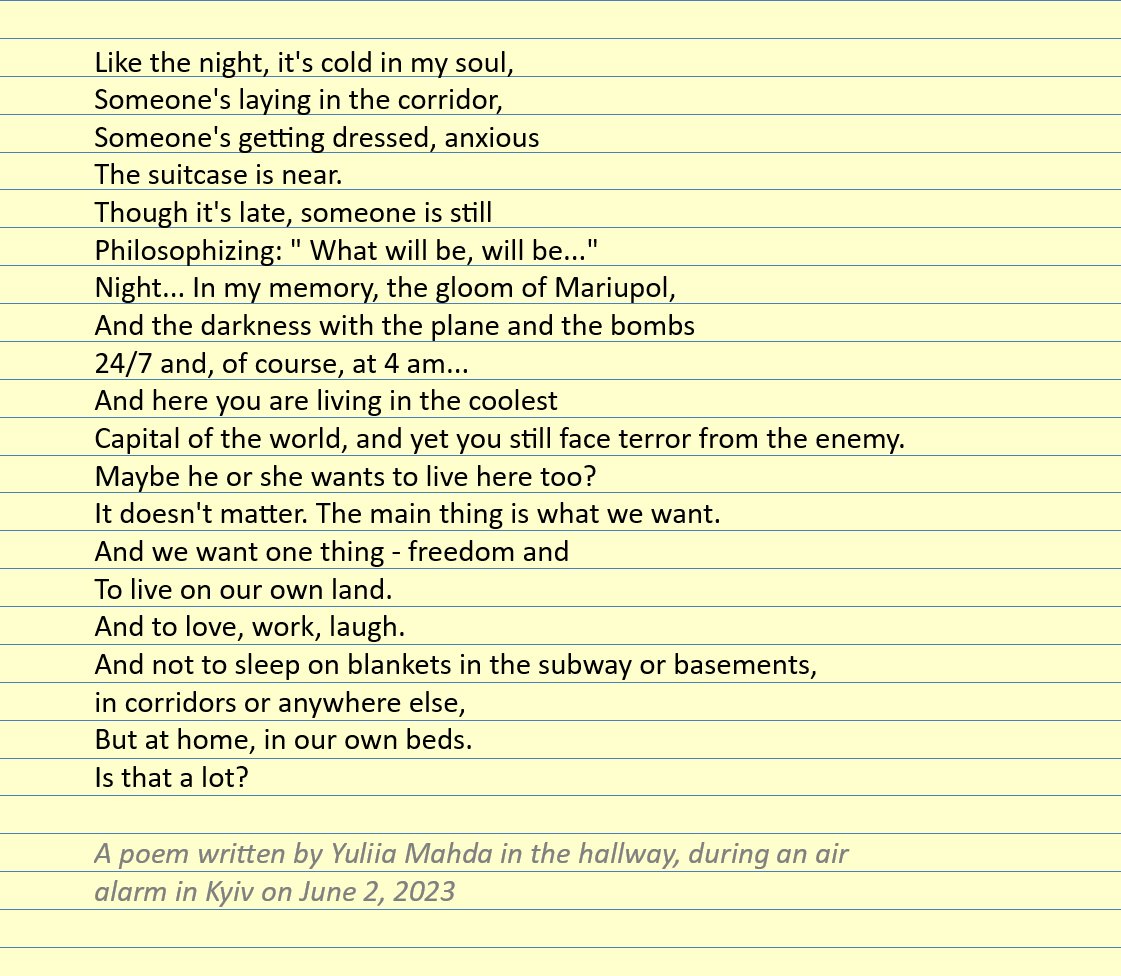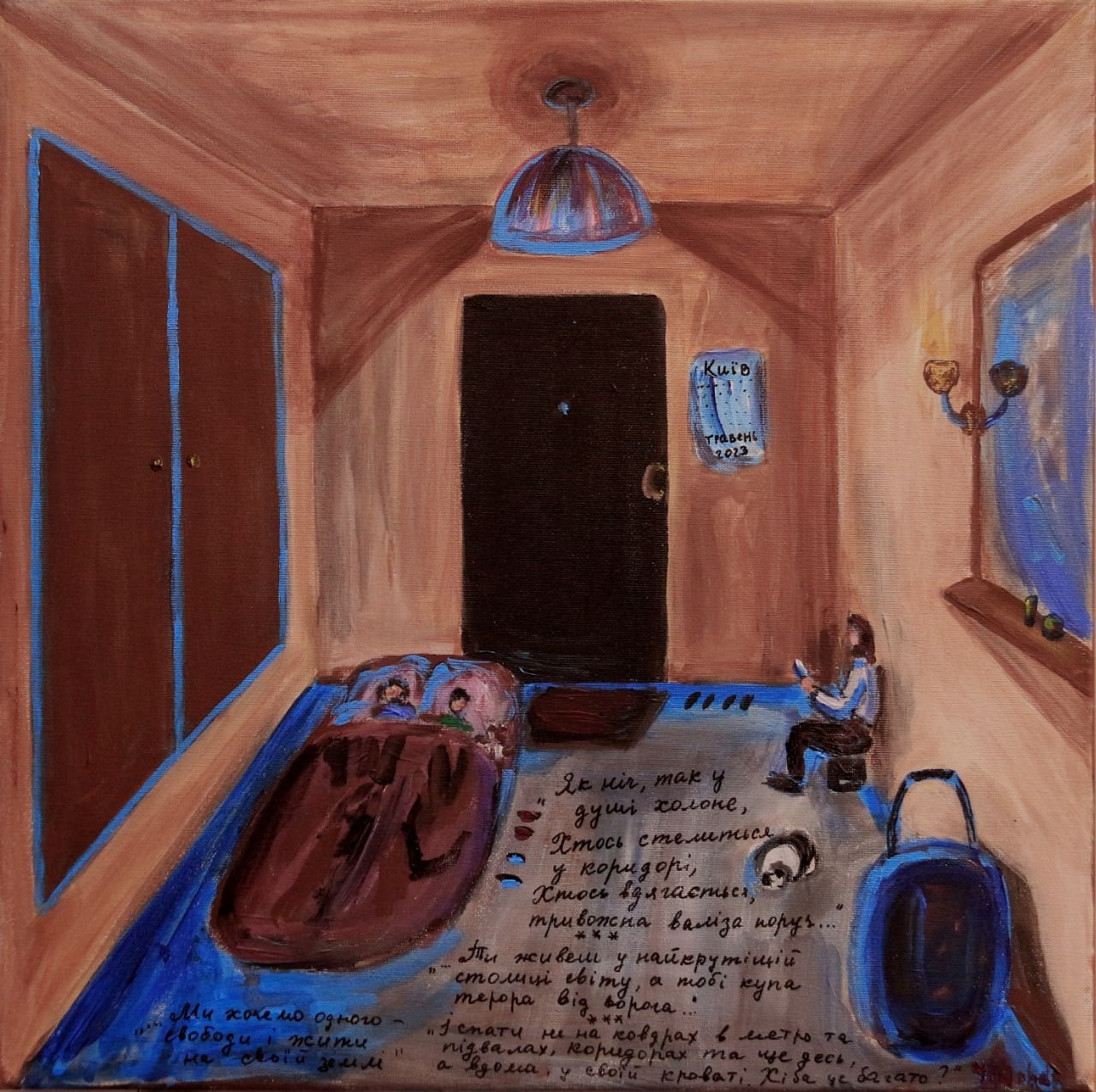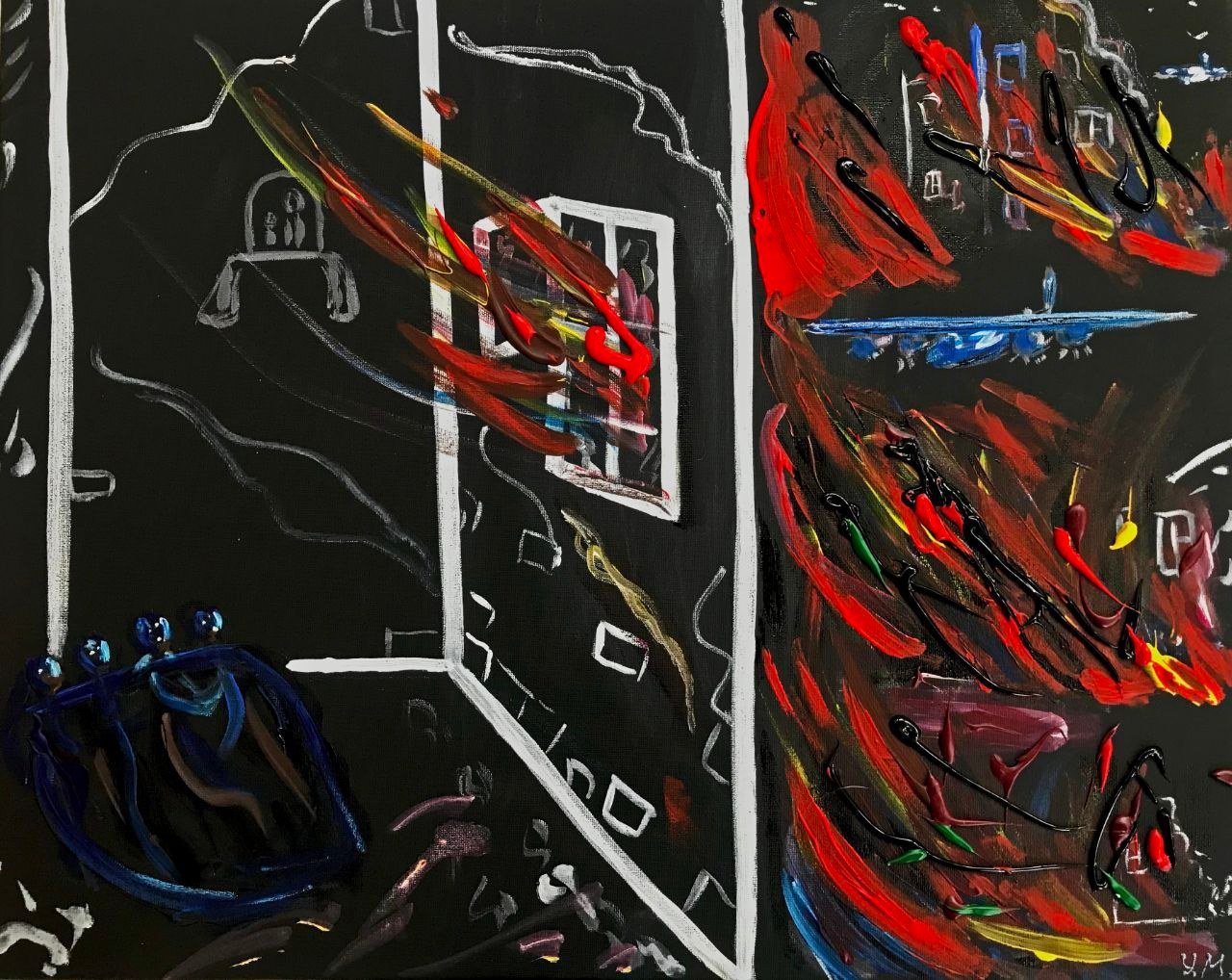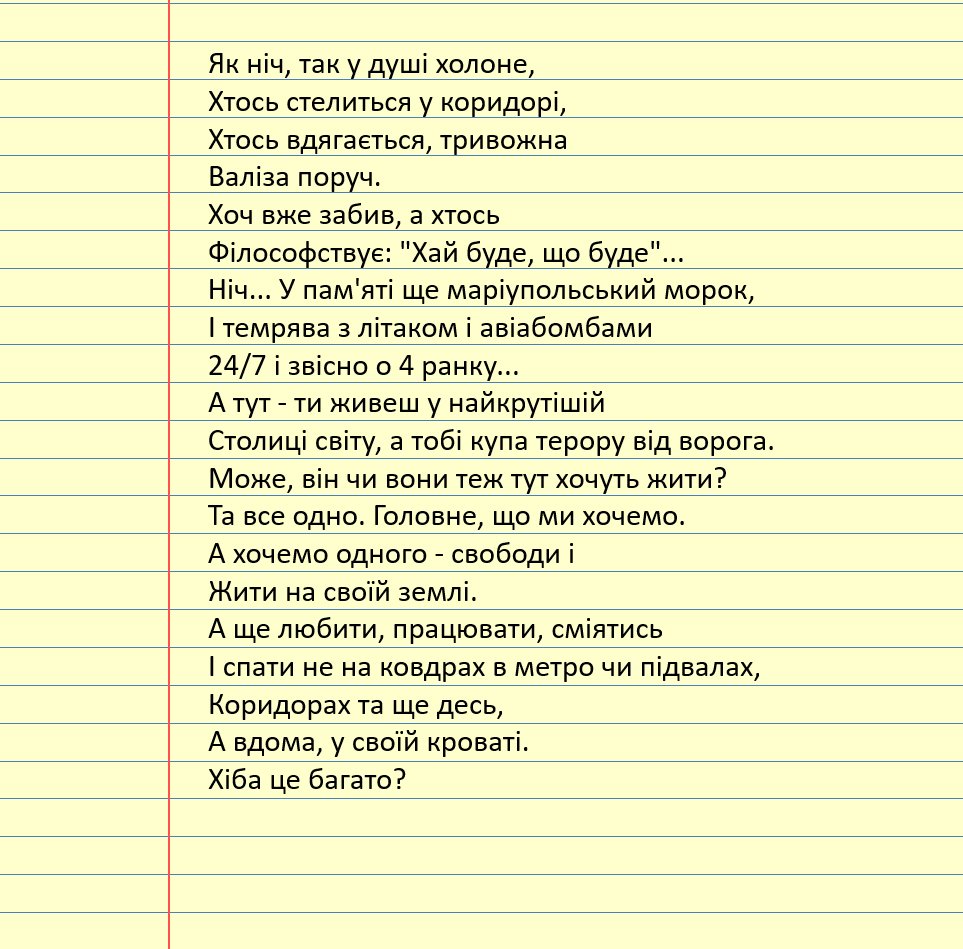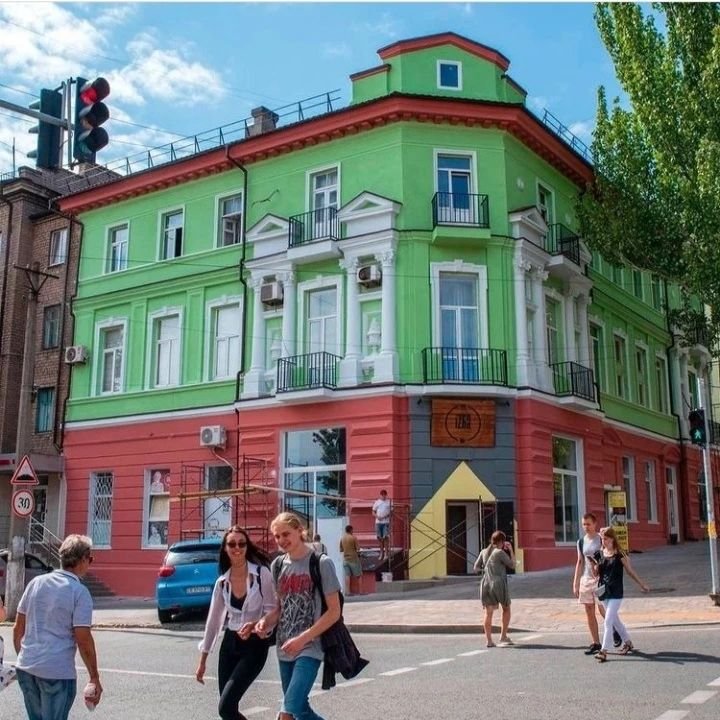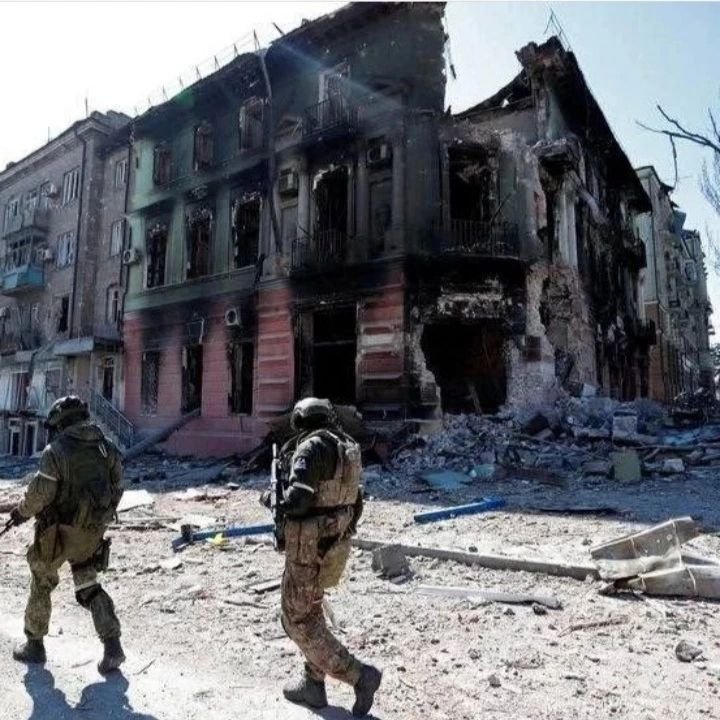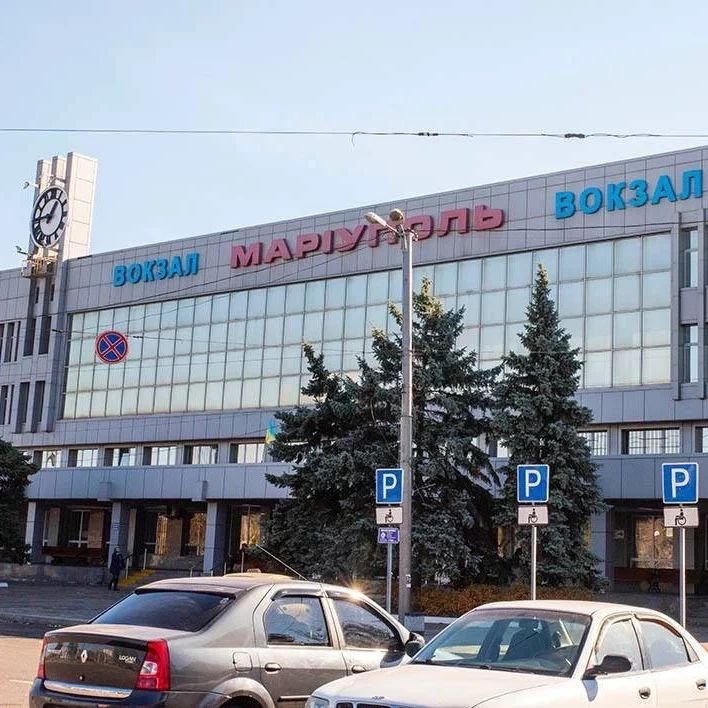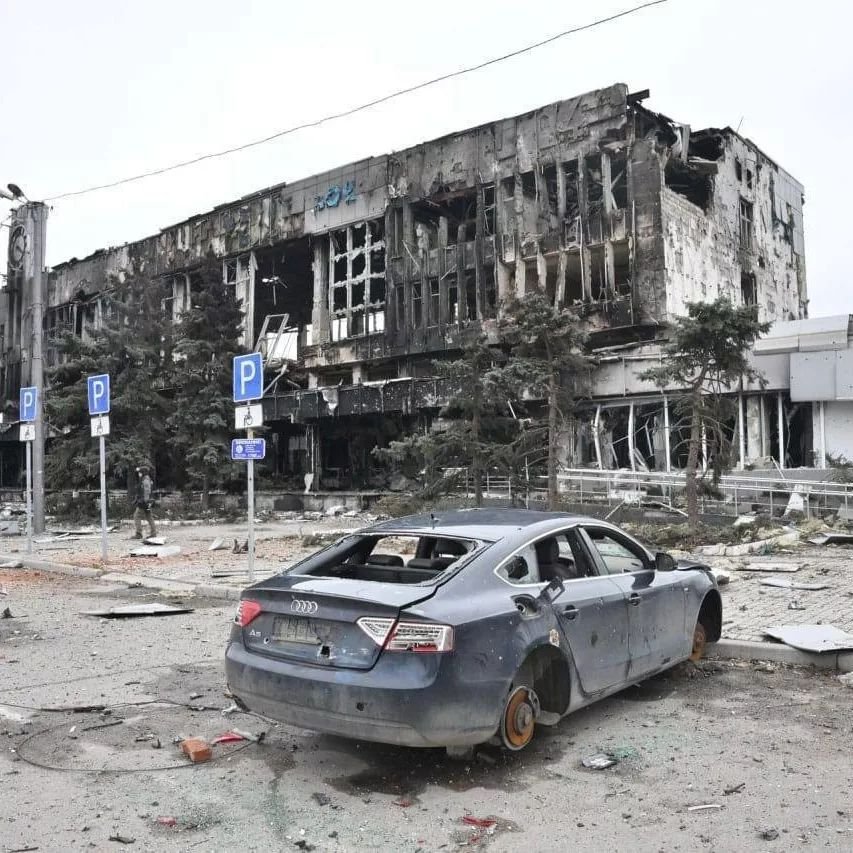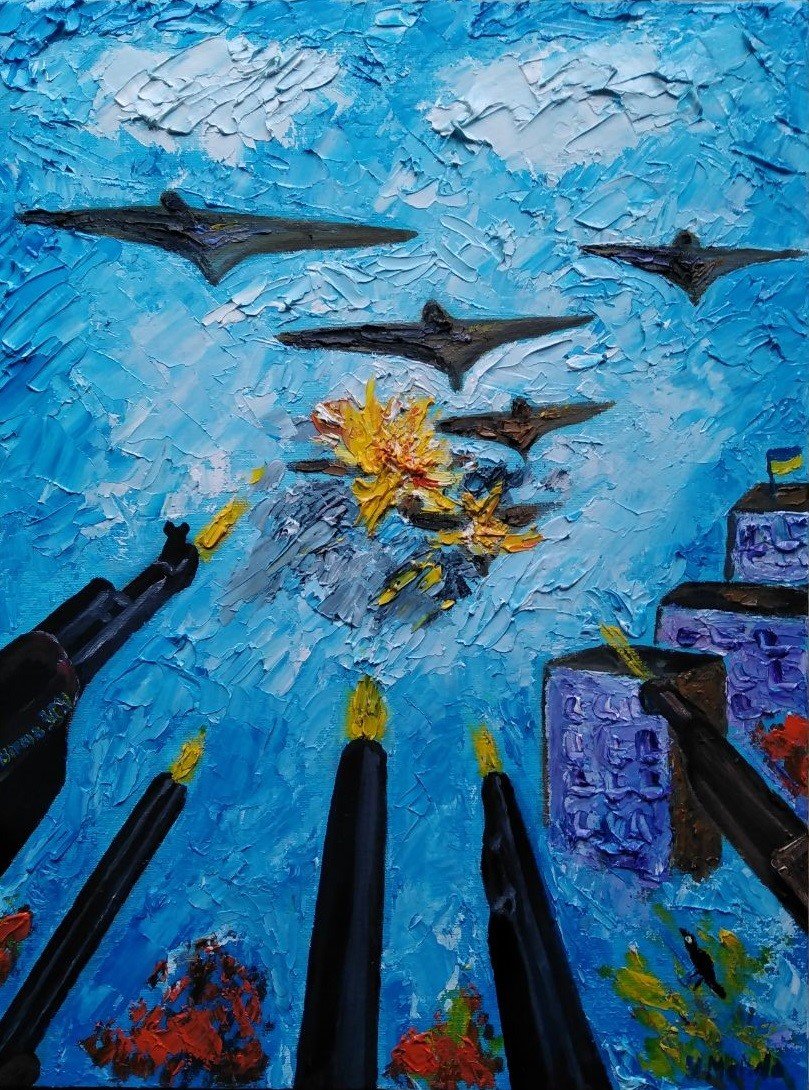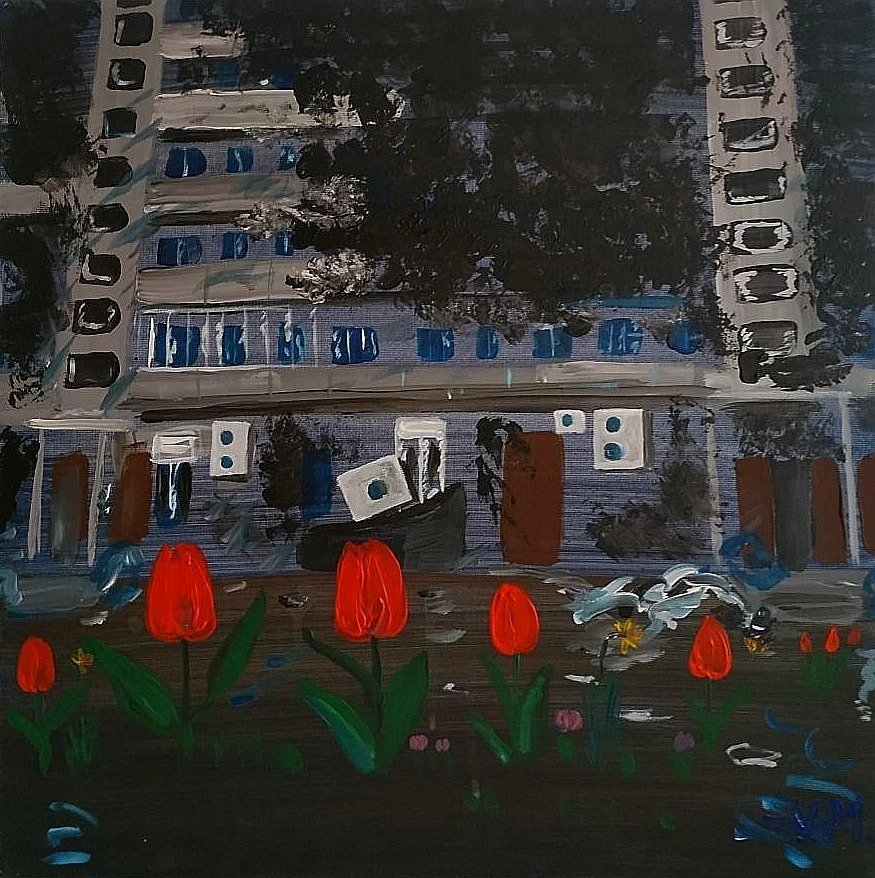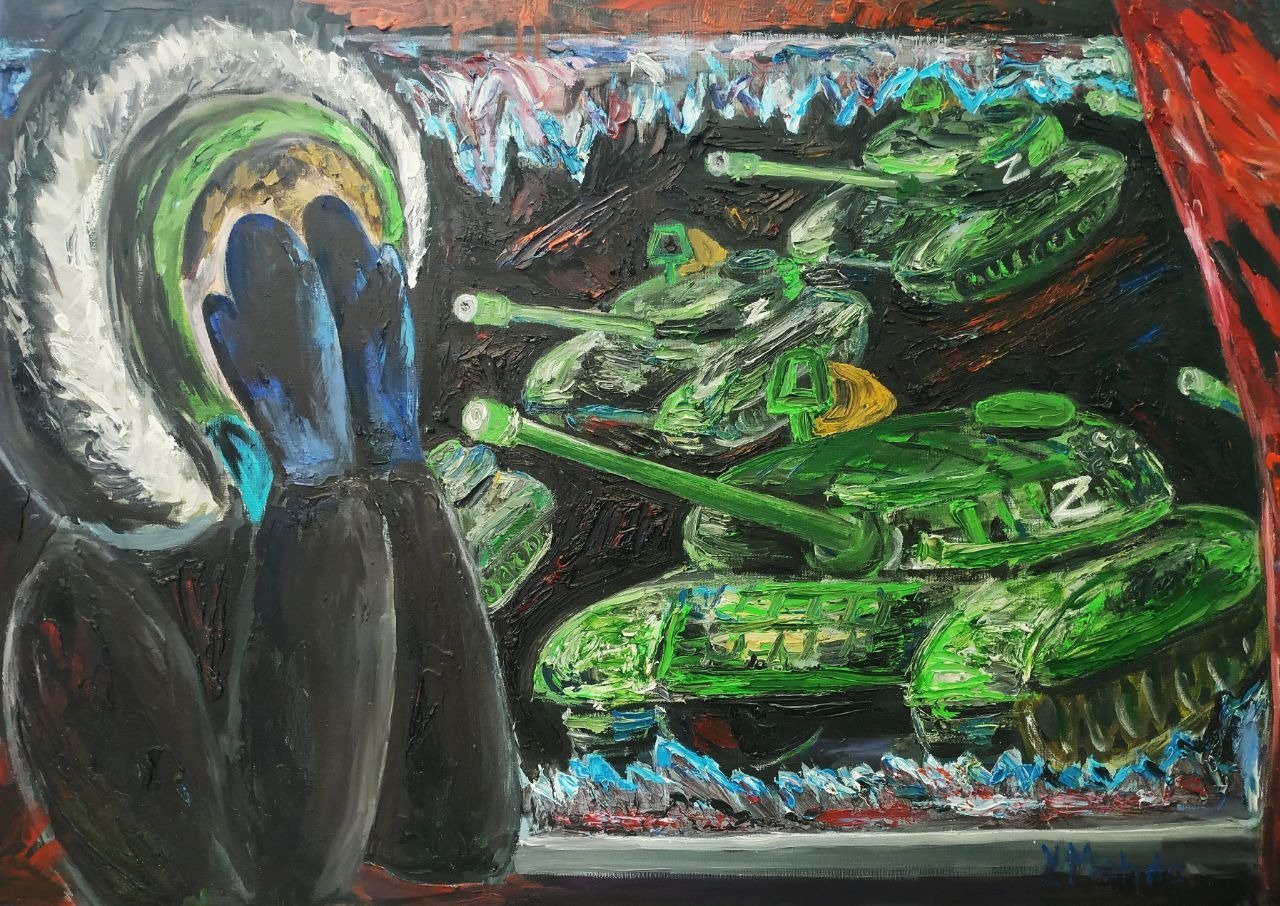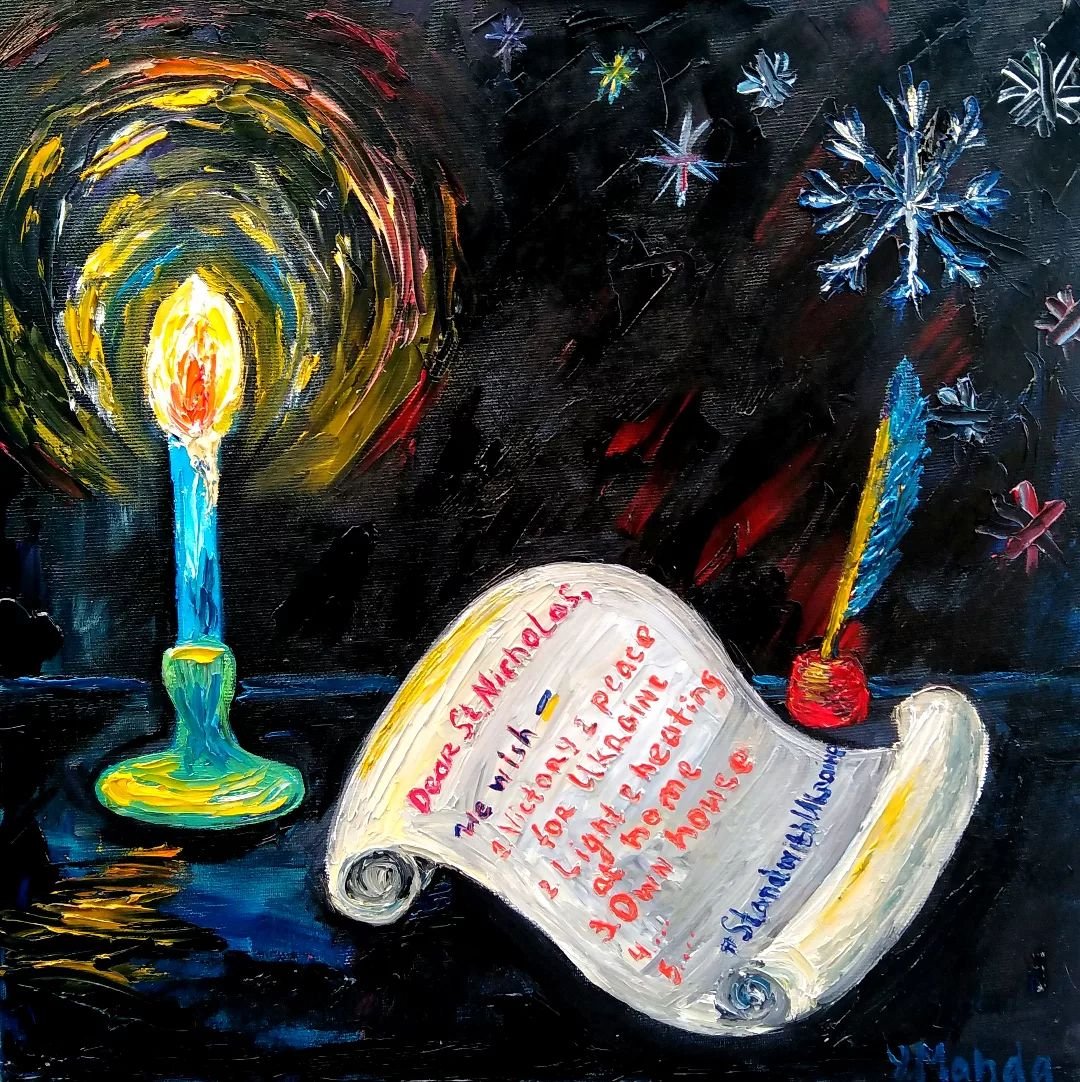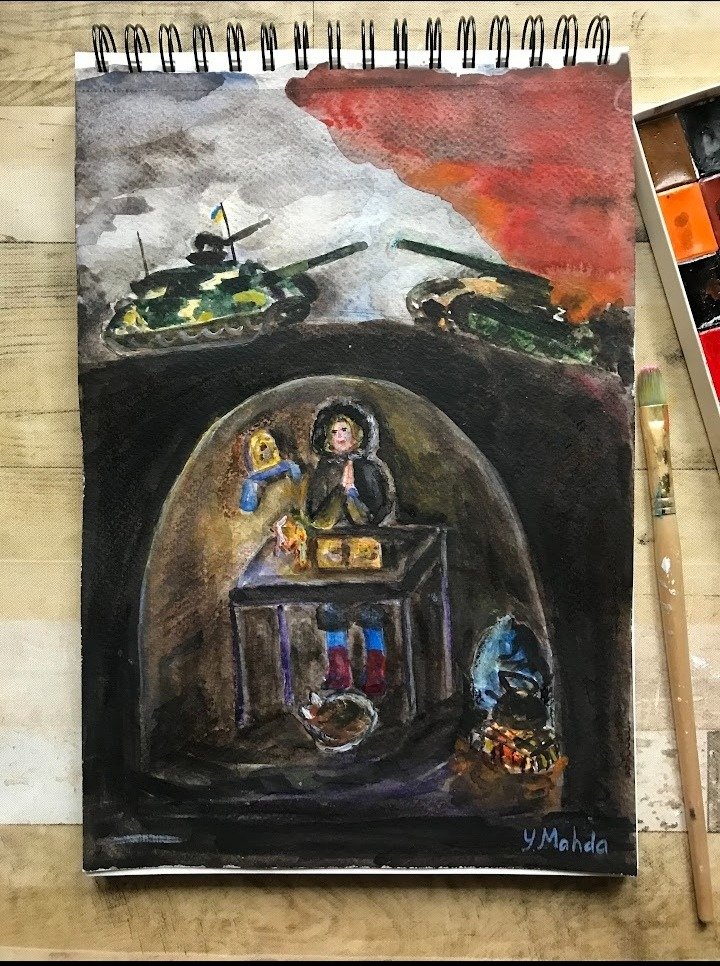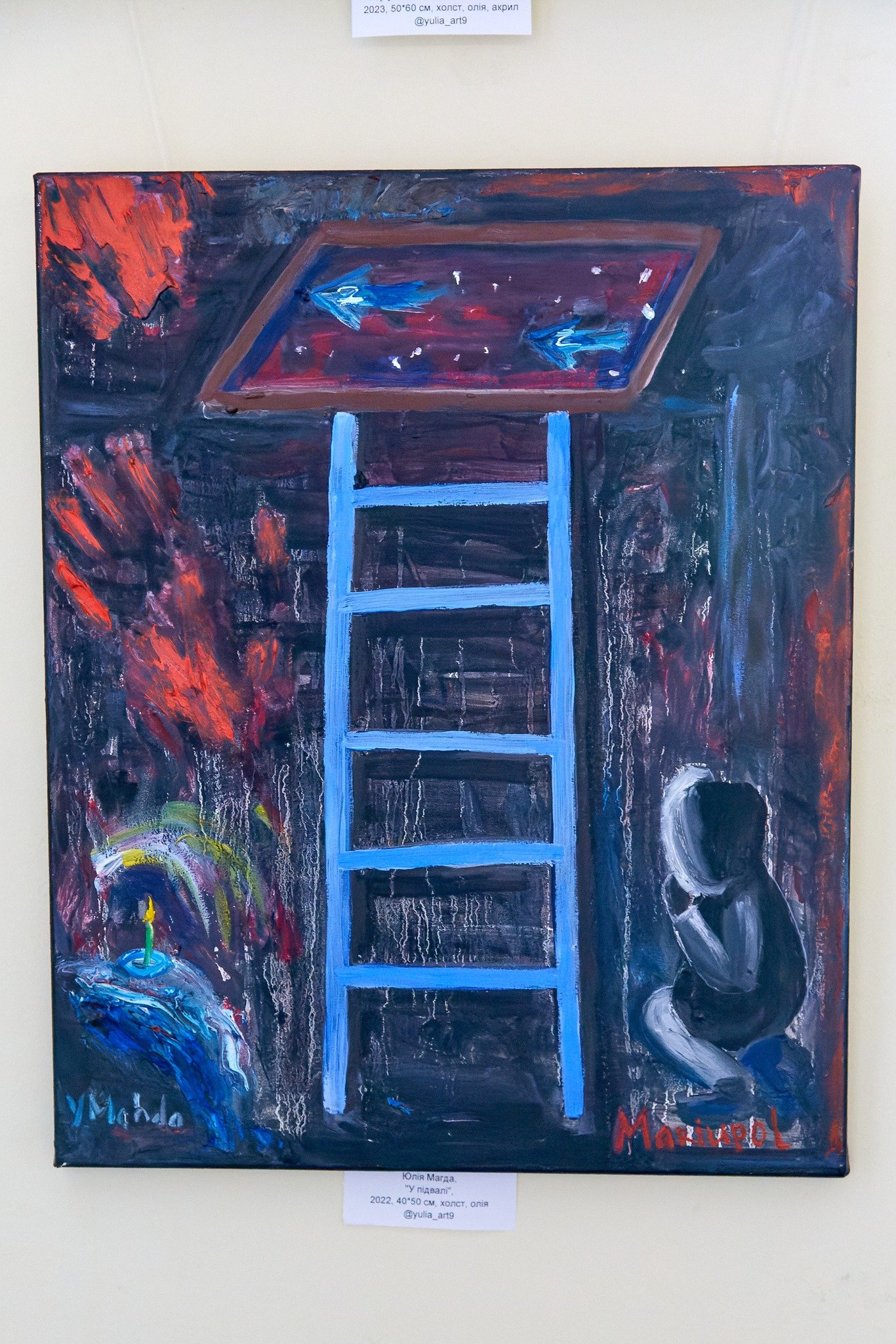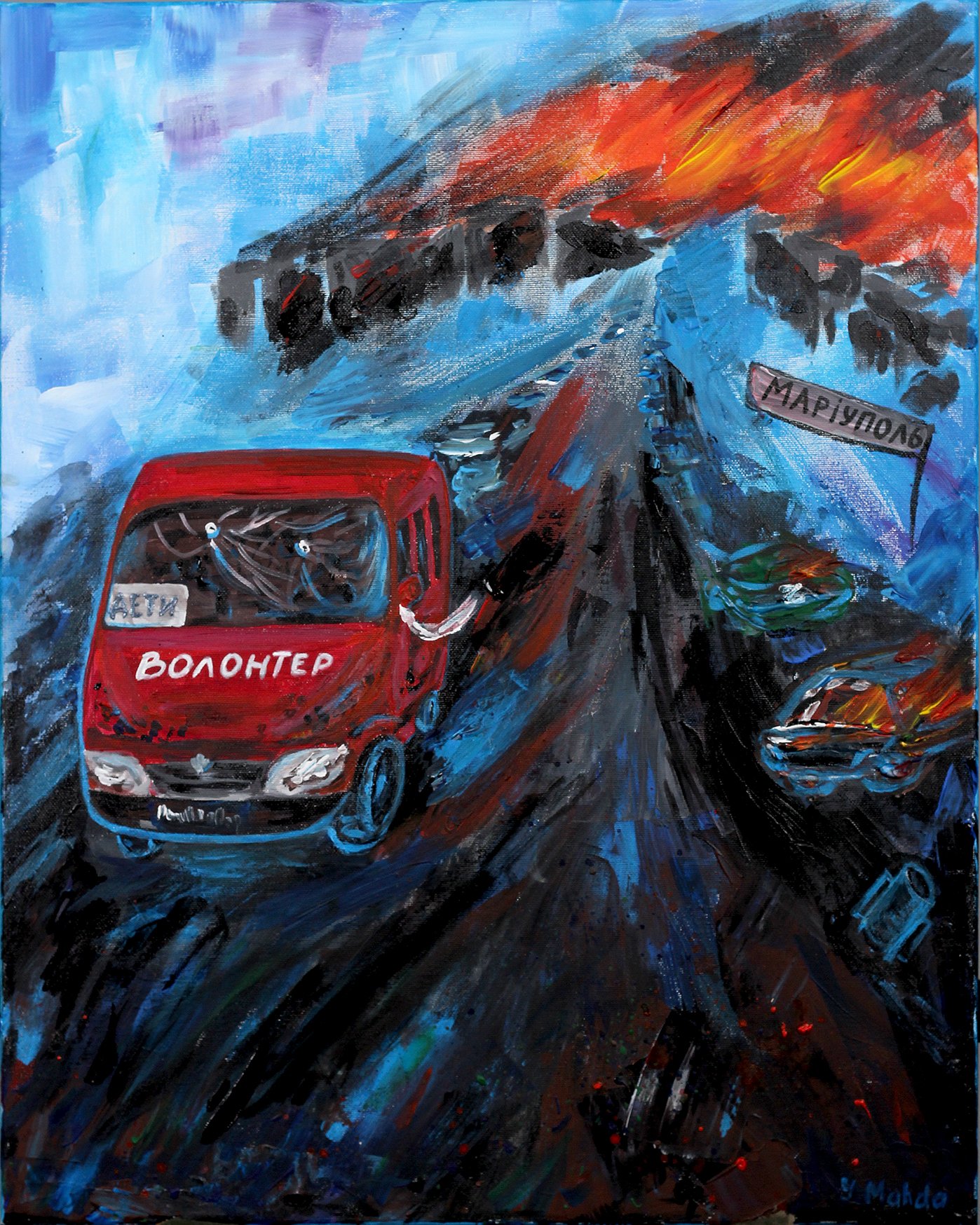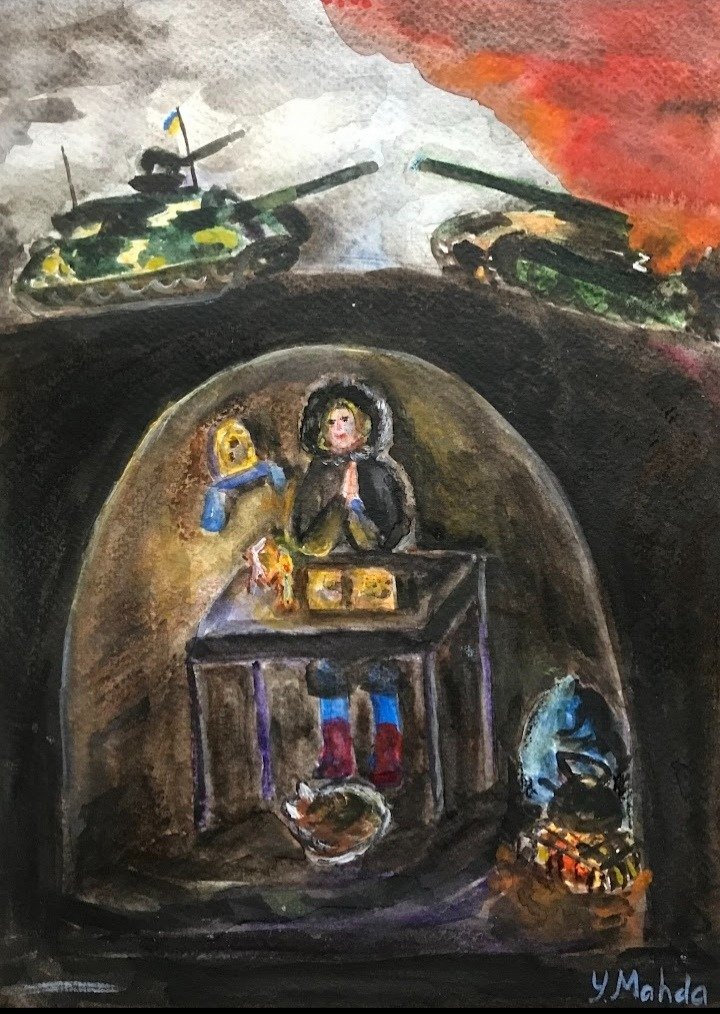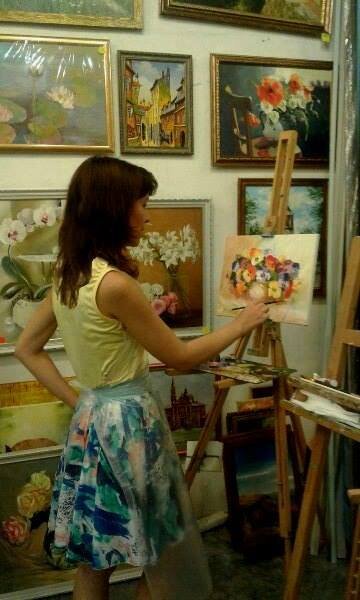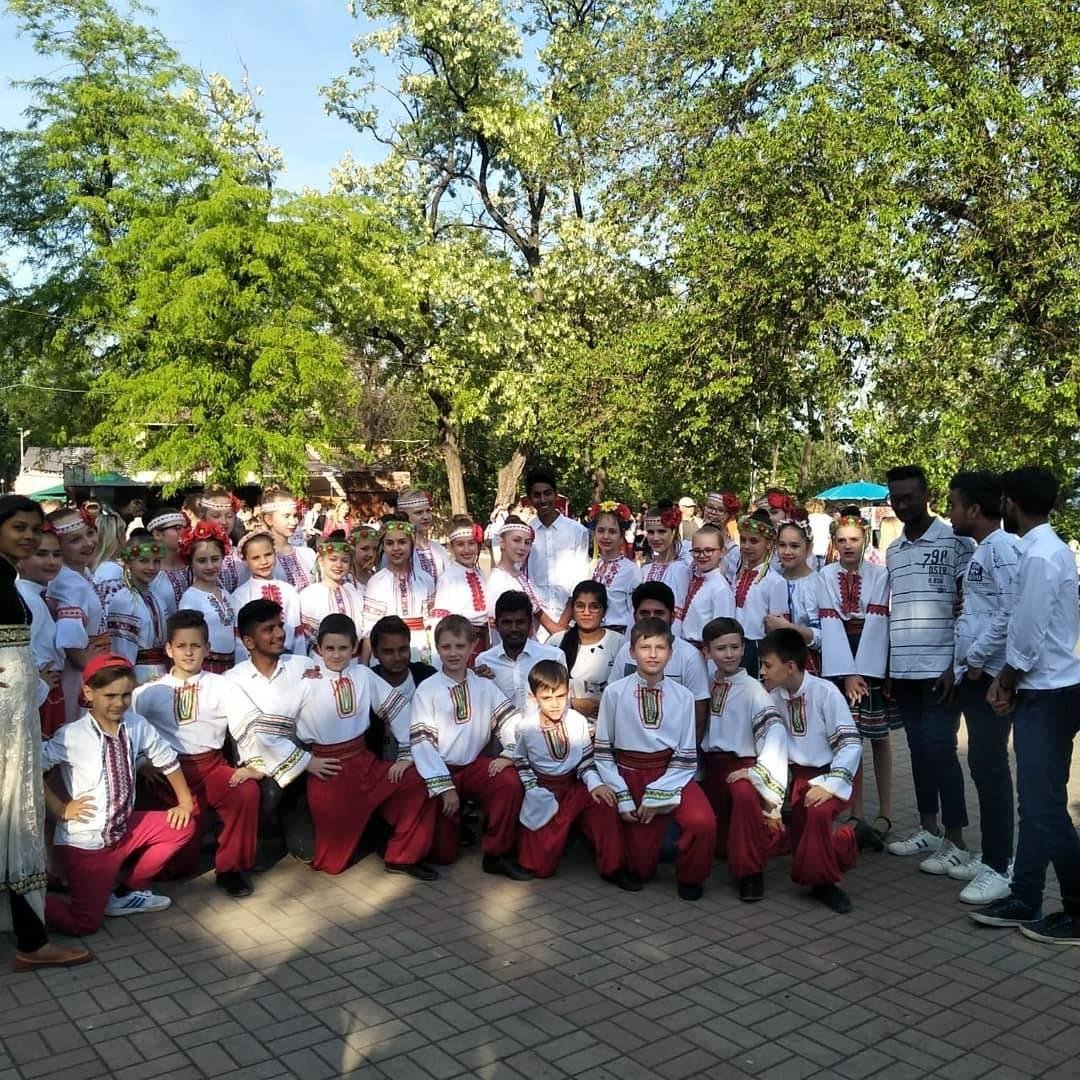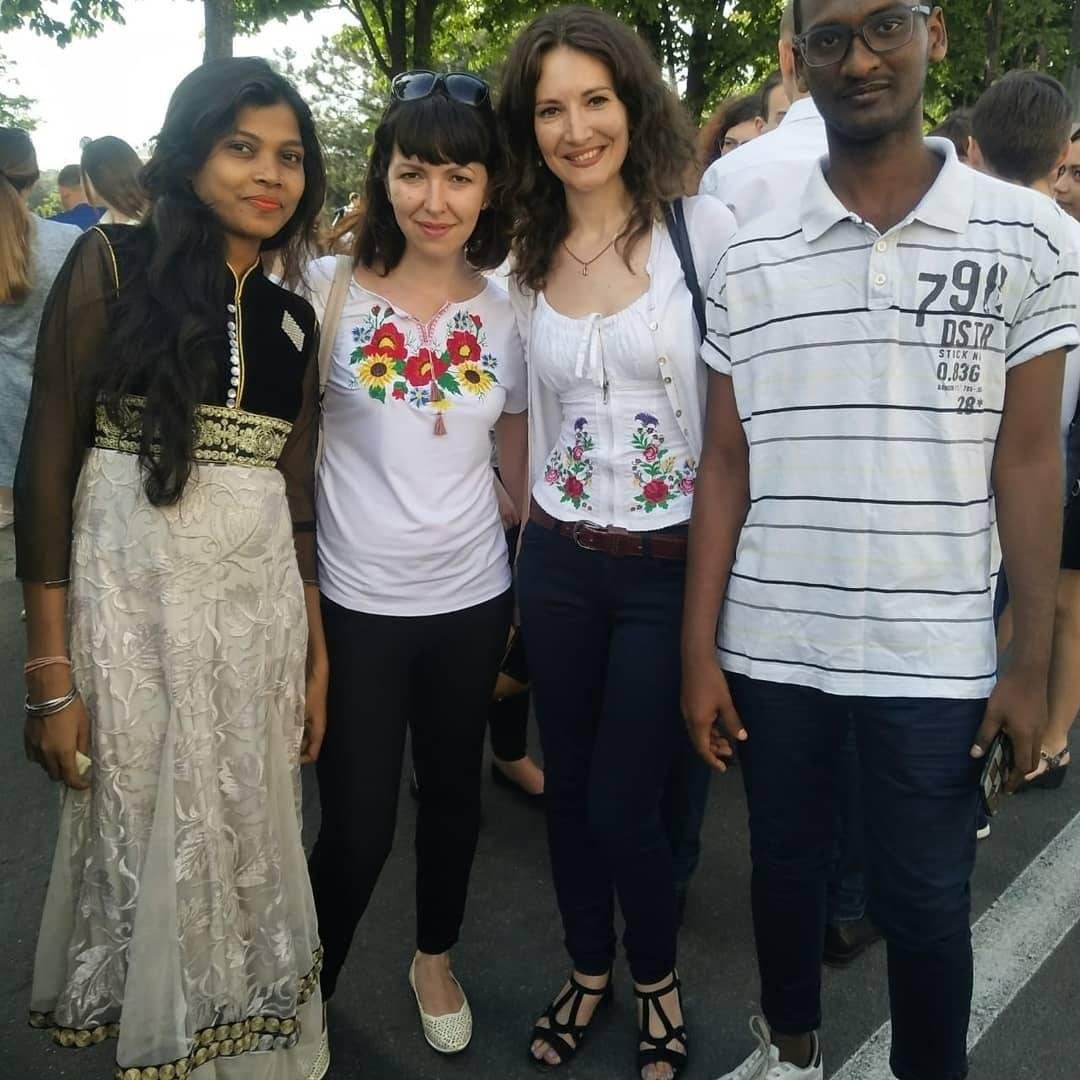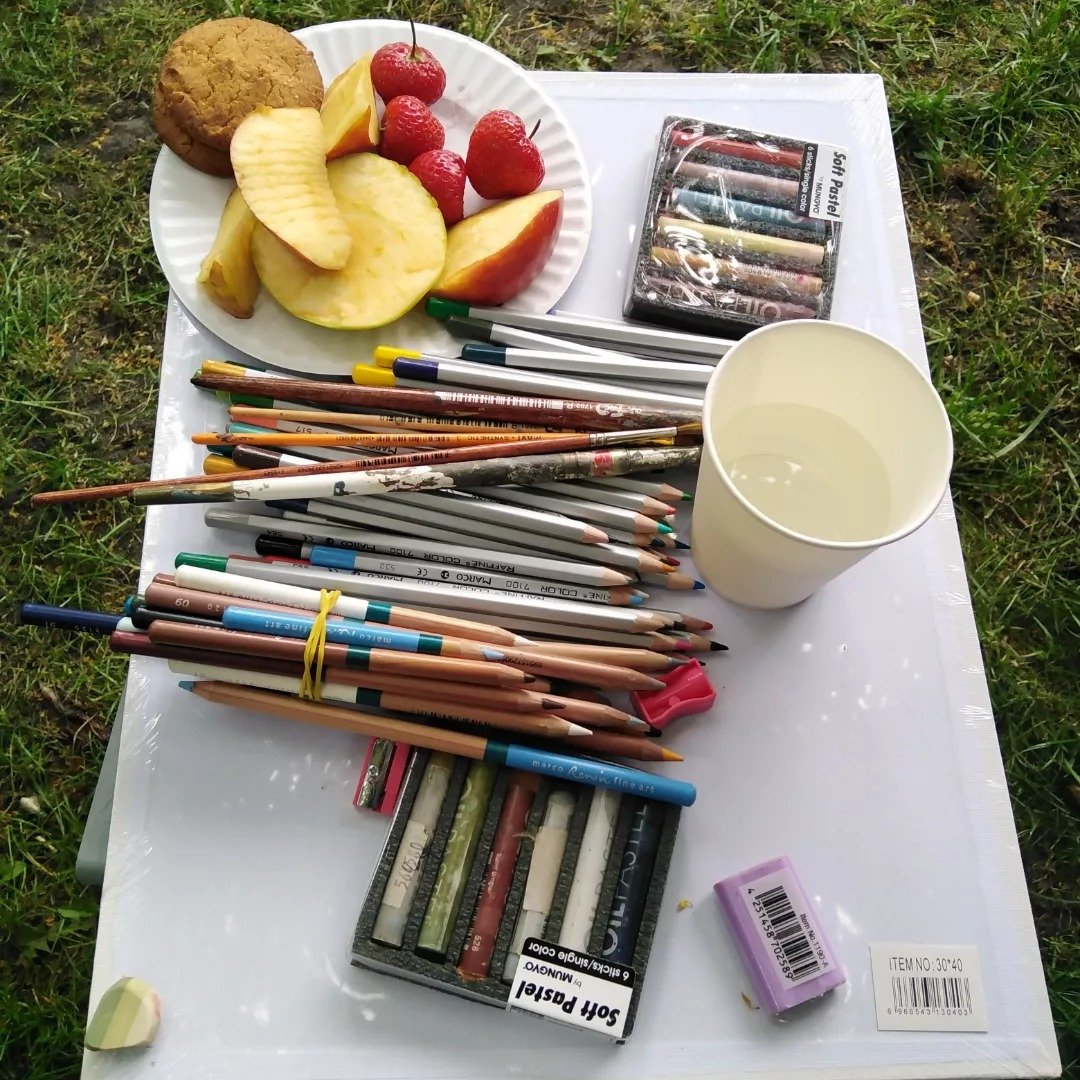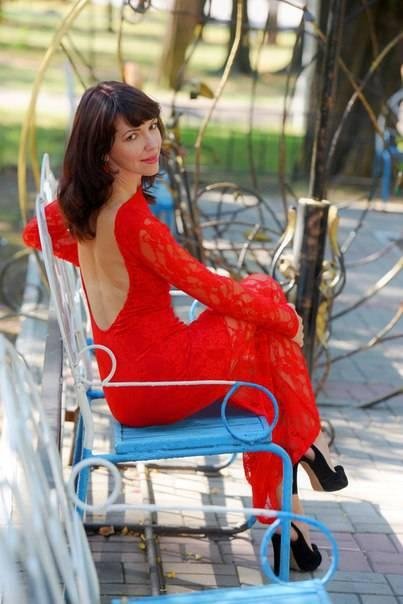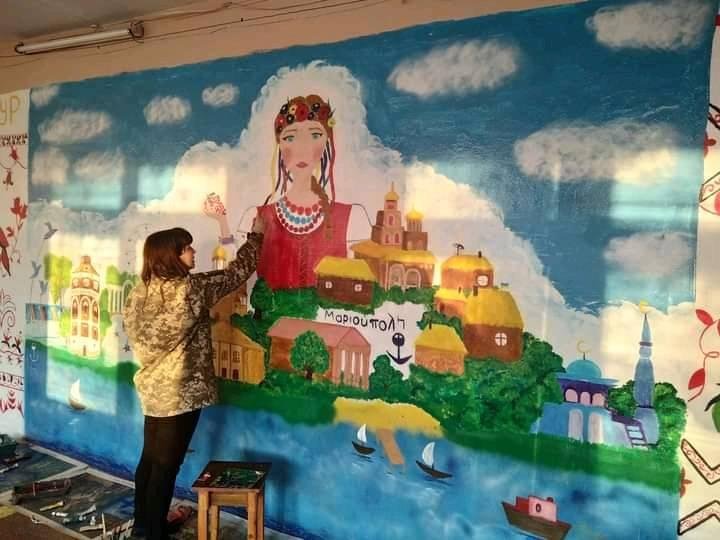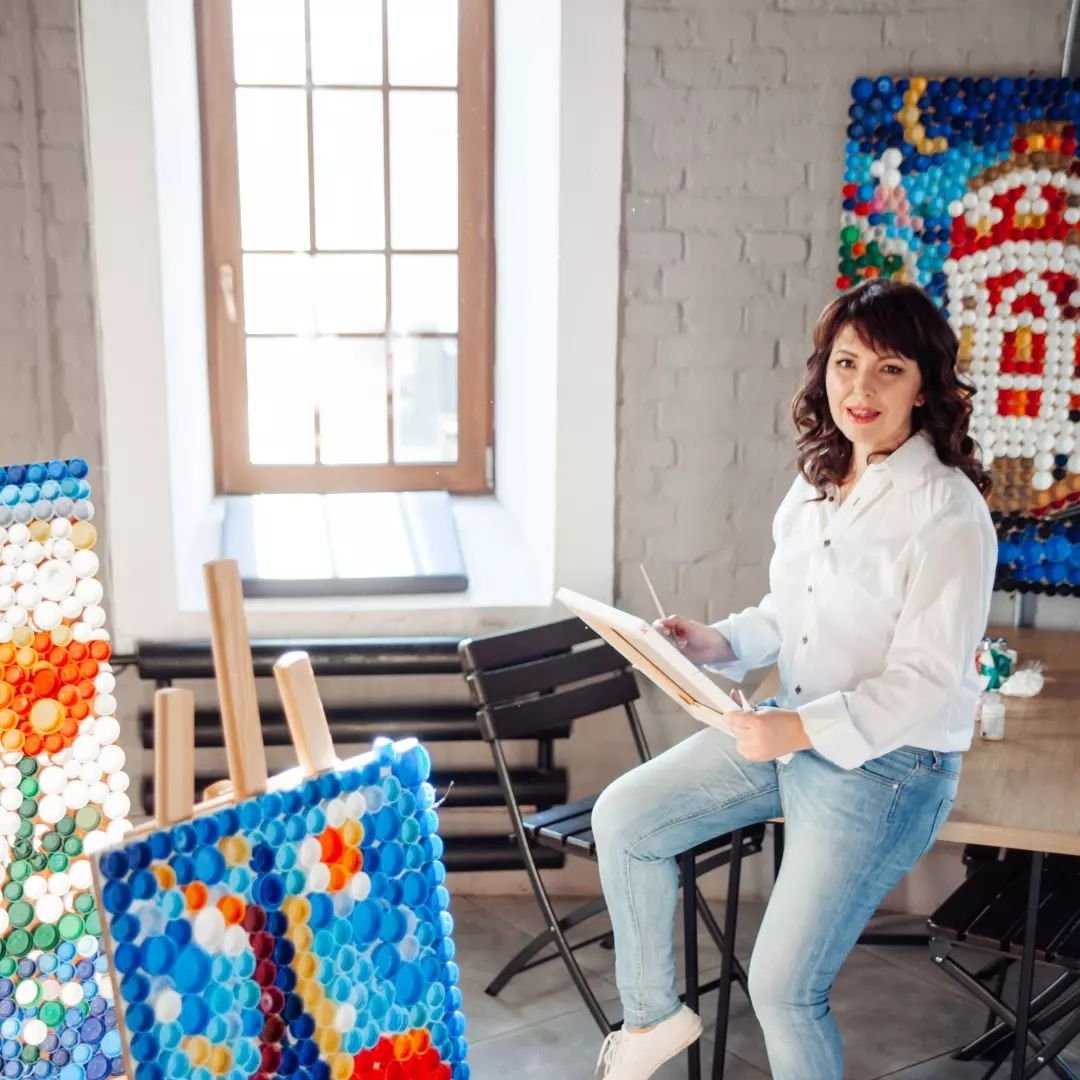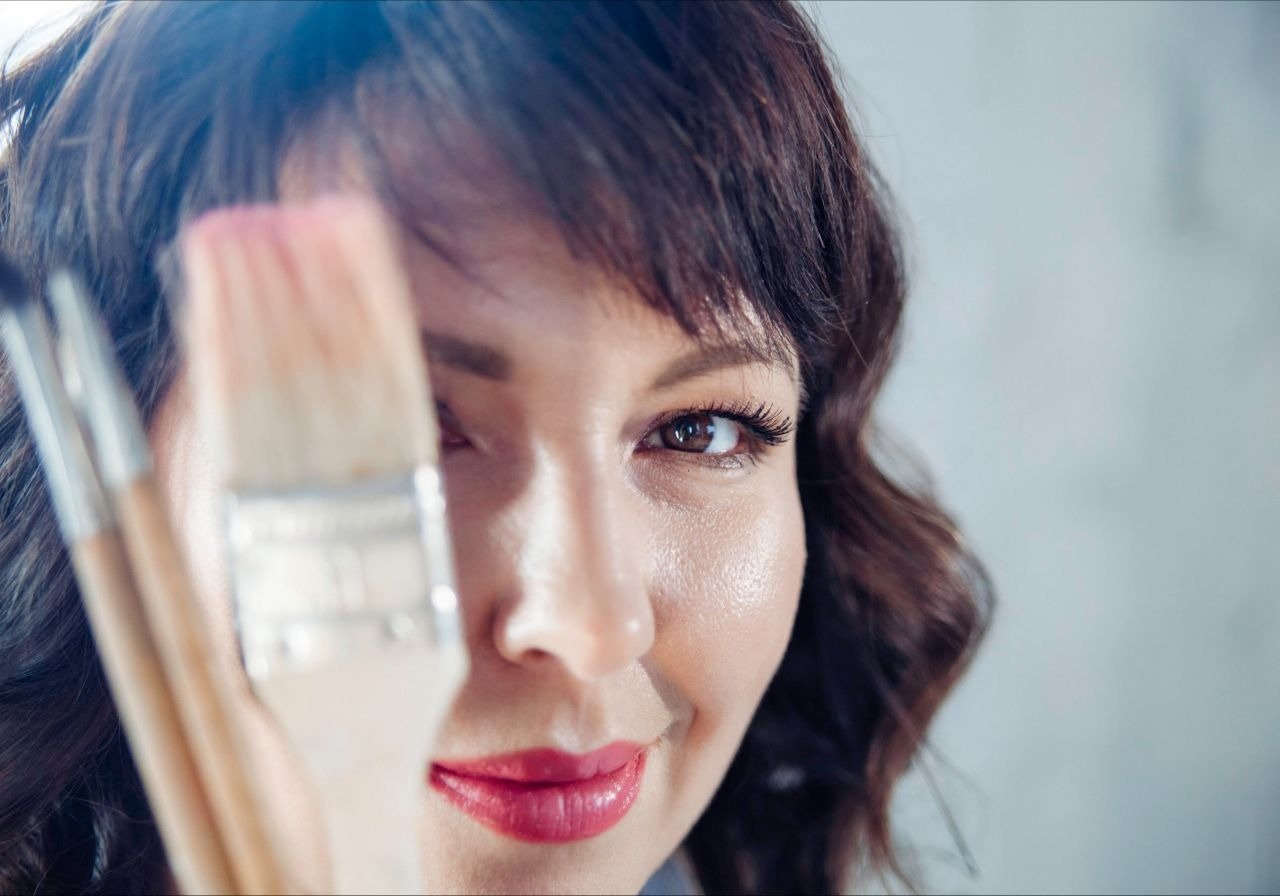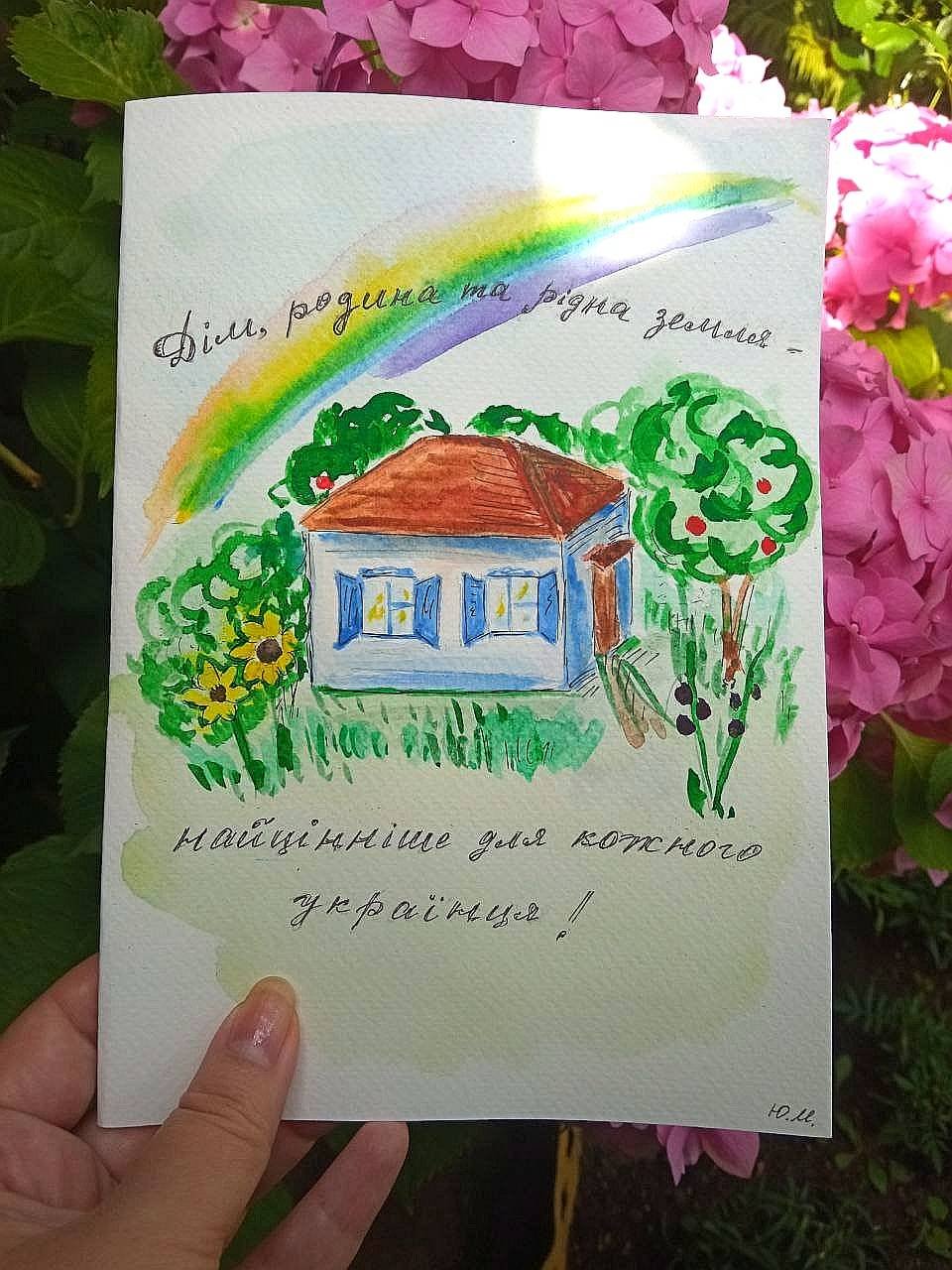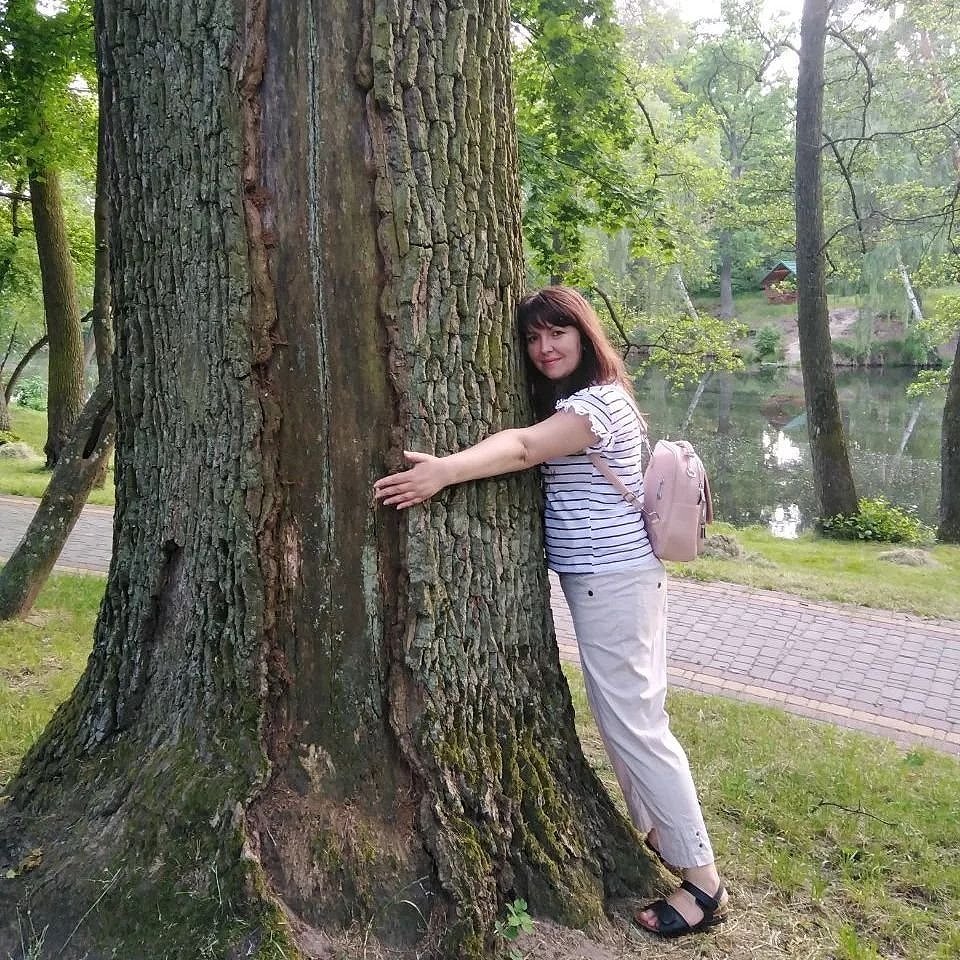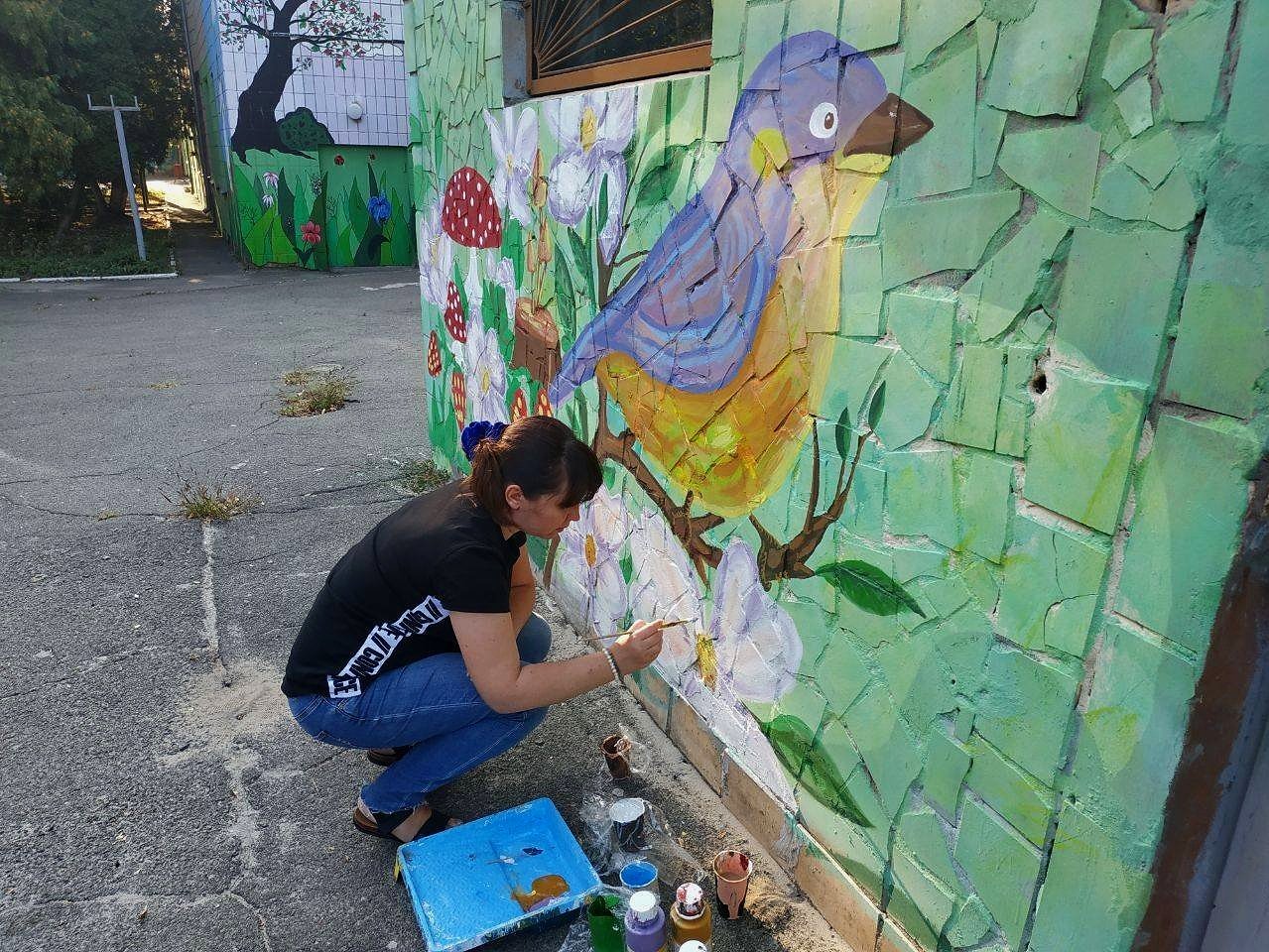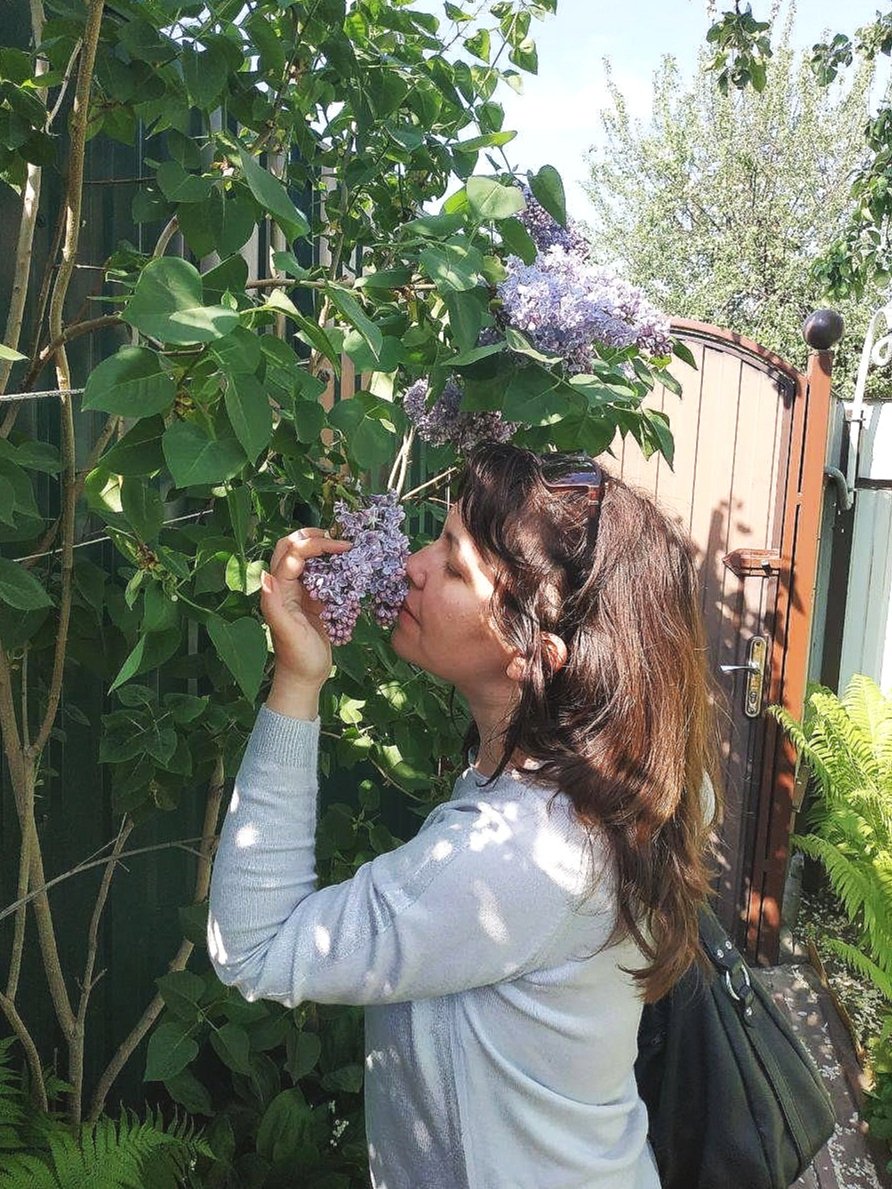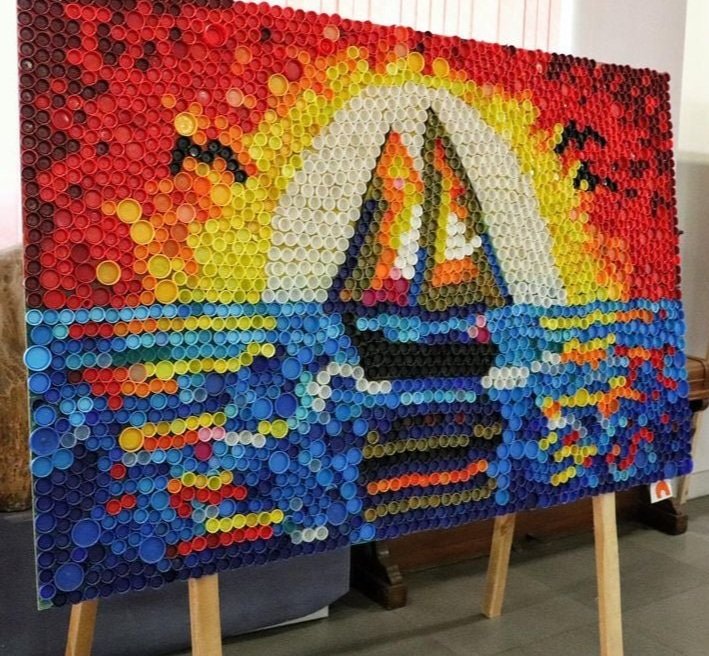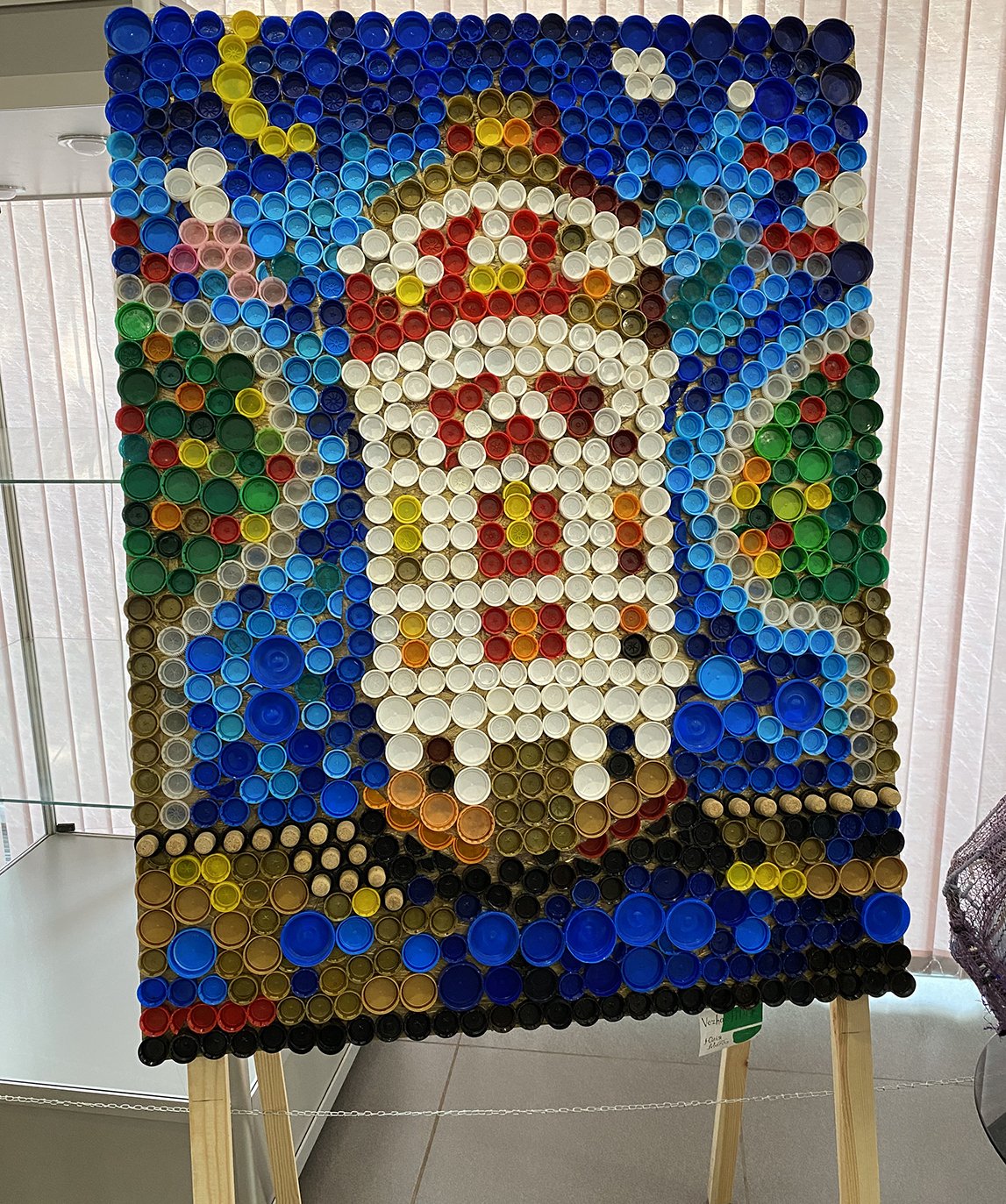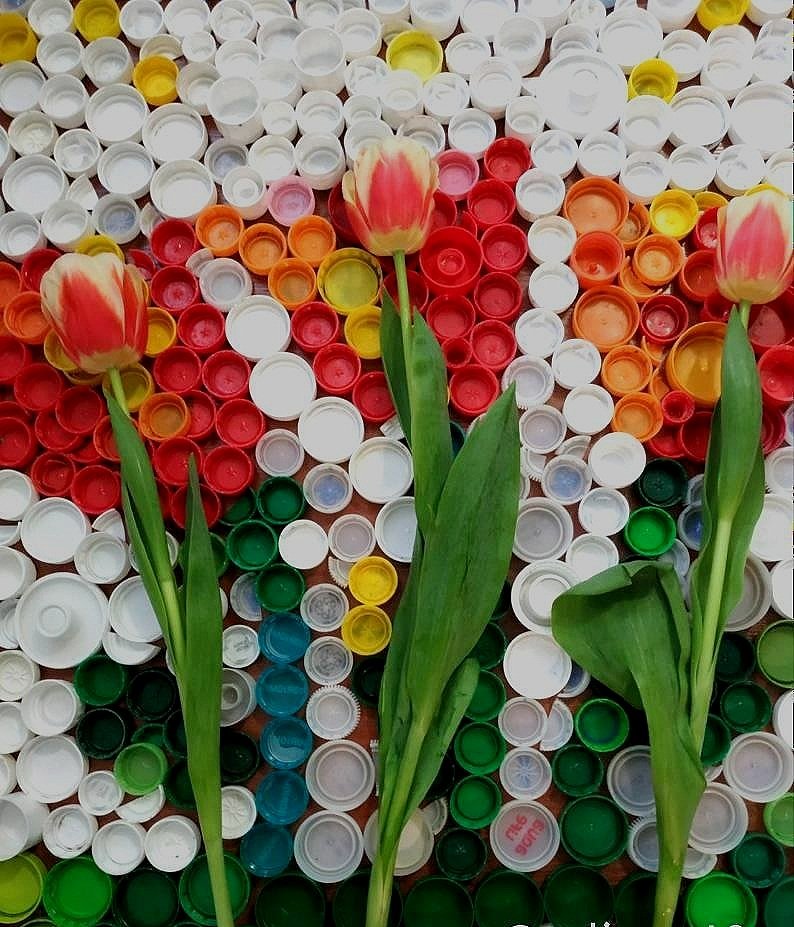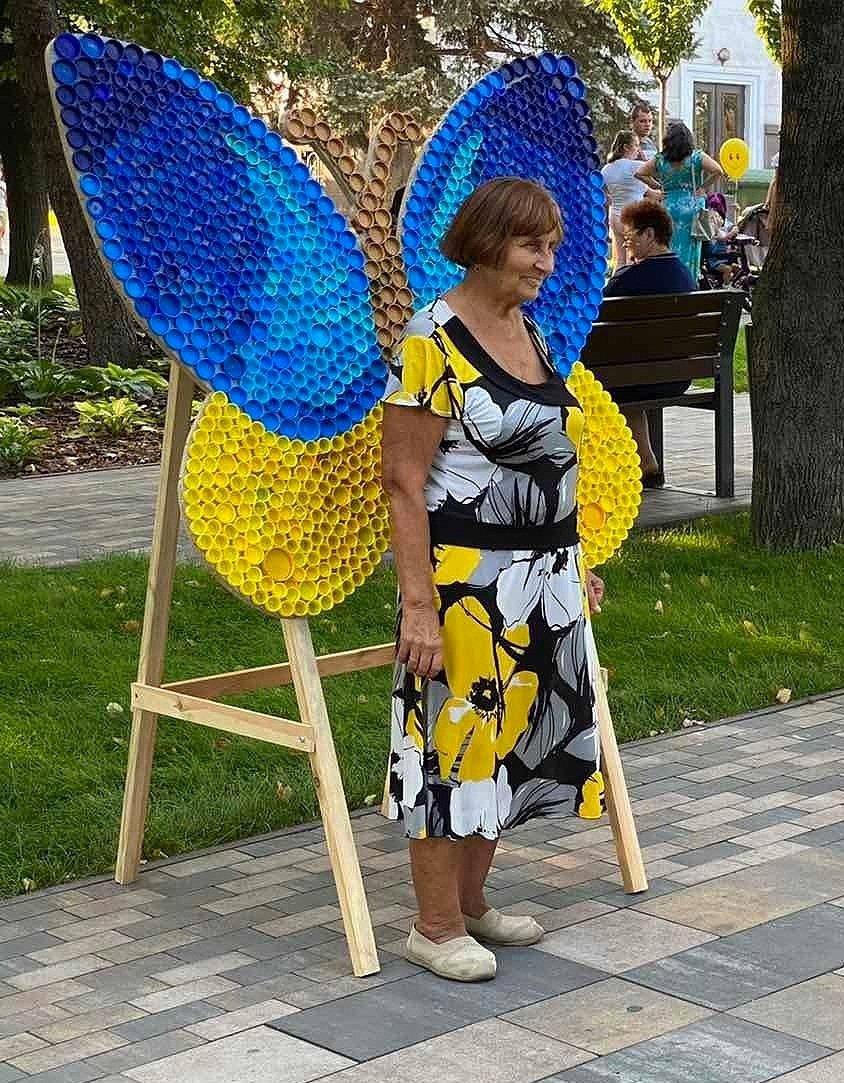THIS INSIDE UKRAINE STORY IS FROM KYIV.
* All images and answers in the feature were provided by the WOW Woman, unless otherwise specified.
INSIDE UKRAINE SERIES: A SNAPSHOT, A DAY-IN-THE-LIFE, A GLIMPSE OF WHAT IT’S LIKE TO LIVE, RESIST, SURVIVE AND PERSEVERE IN A NATION UNDER ATTACK.
GLORY TO UKRAINIAN WOW WOMEN, FOR SUPPORTING THEIR COUNTRY AND BRINGING UKRAINE CLOSER TO VICTORY.
To understand emotional and mental suffering resulting from a collective trauma, one must look at the art coming out of communities undergoing that trauma. During the worst of times, and with the help of words and images, artists and poets not only work through (or find ways to cope with) their own sorrows, but also offer their compatriots an outlet for releasing anger and sadness. Powerful artwork may offer a brief alleviation of the collective pain or even provide hope. It can be intense to view the art created by those who survived a war, or those who are still in it, because you understand that you’re looking at the aftermath of someone’s lived experience.
Ms. Yuliia Mahda is my next Inside Ukraine WOW Woman; she is an artist and a poet and a proud Ukrainian who comes from the Eastern Ukrainian city of Mariupol. In the time since the full-scale russian invasion began (on February 24, 2022), Mariupol, and it’s initial population of half a million, have undergone the most painful transformation in history: russian invaders wiped the city and tens of thousands of its residents off the face of the earth in a complete, indiscriminate and utter annihilation. Russians turned the city into rubble, buried thousands of families under the apartment complex ruins, killed children in their homes, left lifeless bodies of civilians decomposing in the streets.
For those who tried to flee, invaders set up filtration camps (or military checkpoints) where Ukrainians were interrogated, beaten, tortured and psychologically pressured. Ms. Mahda had to go through 17 such checkpoints where russian cowards searched for cell phone footage from Mariupol or looked for chest bruises (telltale signs of body armour) on men. It’s clear that the Mariupol extermination campaign has been carefully planned by Kremlin’s executioners because 17 checkpoints ensured the evidence, which would horrify the world at-large, would be completely erased. Dissenters will never be seen again. Although Yuliia erased her phone, russian cowards couldn’t capture her memories. Her bravery is in her storytelling, in her art. Yuliia paints and writes to chronicle the pain of 270,000 Ukrainians who fled Mariupol; her work speaks for and honours 87,000 civilians, women and children who were killed there.
Images and paintings in this feature bruise and leave a scar but including them was incredibly important for me because they also serve as a form of justice, a historical record, another burden of proof that will be added to the dossier of evidence for future retributions for the russian federation. Russia, on a massively devastating scale, continues terrorizing innocent people; to avert eyes is to deny an ongoing reality for 37 million people inside Ukraine and 6 million refugees. I choose to keep my eyes open and share and spread the truth. Please join me!
- Olga Shmaidenko, Founder of WOW Woman.
“In order to become a good artist, you have to sleep with an album and a pencil. You have to draw and draw from real life." - Arkhip Kuindzhi
Hope for Mariupol - this poem was written by Ms. Yuliia Mahda before the full-scale russian invasion of ‘22. Ms. Mahda dreams of a better future for her city, wants to see a major clean up, and wants people to take responsibility for the beautiful Mariupol. Little did Yuliia know that the words would be so tragically relevant and poignant now as the city is occupied, demolished and defiled by the russian invaders. Let these words become reality for this Ukrainian city. Translated for you from Ukrainian into English:
“The city should be washed and cleaned
Let's put our souls into it and revitalise everything,
Paint all the houses - at least in the centre
A little, put up new fences,
Fountains should be re-launched.Asphalt would be laid on the roads,
Every road, 100 per cent
And stop messing up!
Afterall, we're not walking around in rags
It's time to respect the city,
It's about time we had some respect for our city!Dumpsters, off the old streets, enough
No more shabby benches, with peeling paint
Bad entrances and porches,
Let the dust of centuries
Remain only in the museums-
No more miserable minibuses,
Insane! No more thoughtless
Construction, beer joints!
Stop ruining us and the nation's peopleLet there be construction sites,
IT hubs, paintings,
Cleaner building blocks,
Flowers, prospects-
Maybe then, here it'll be better than leaving!Don't be complacent,
House after house, avenue after avenue
And avenue after avenue, take care of it all,
Let it all be clean
Not somewhere like Prague, Geneva, Berlin!
Let it be in our own city
Let everything be OK, in our city at last
Let our factories be
Without soot, without grime - it's really possible,
To make our place like the others'.
Let our sea be crystal clear!
It's just a matter of a little thinking
To care more about the people around us!Yes, I'm wishing and dreaming
What if it's not in vain?
There'll be a new dawn and a new day,
Even if it's not all smooth at the start,
Let’s start somewhere, and once you've started,
Let’s keep on going.” - Yuliia Mahda.
Місто б узяти відмити й очистити
Душу вкласти і все оживити,
Будинки всі пофарбувати - хоч у центрі Немного, паркани поставити,
Фонтани б знову запустити.
Асфальт покласти на дорогах,
Доріжках - на 100 відсотків,
І досить латати! Ми ж
Не ходимо в обносках,
Лахмітті - місто пора,
Нарешті, поважати!
Звалища геть з усіх
Вулиць старовинних, вистачить
Фарб облізлих, зламаних
Лавок, під'їздів поганих,
Пил віковий нехай
Тільки в музеях-
Досить маршруток убогих,
Лихих! Досить бездумних
Будівель, пивнушок!
Досить нас усіх
І народ розкладати!
Нехай будуть будівництва,
IT хаби, картини,
Чисто в під'їздах,
Квіти, перспективи -
Може тоді, тут
Буде краще, ніж їхати!
Не малодушничати,
А будинок за будинком, проспект
За проспектом - усе обійти,
Нехай буде чисто,
Не десь у Празі, Женеві,
Берліні! Нехай у нас буде
Теж усе ок, нарешті.
Нехай будуть наші заводиБез кіптяви, сажі - реально ж,
Зробити в нас як в інших.
Нехай наше море буде прозорим!
Справа за малим - думати
Побільше навколо про інших!
Так, я мрію. А раптом не даремно?
Будуть світанки і в житті просвіт,
Нехай усе не гладко,
З чогось почати, а якщо почали,
То продовжувати.
Artist, Poet, Mariupol Survivor, Kyiv, Ukraine
1. Name.
Yuliia Mahda.
2. Where were you born and where do you live now?
Barvinkove, Kharkiv region. I lived in Mariupol for a long time, now I live in Kyiv.
3. What did you study and what is your profession?
I’m an artist (Mariupol Art School named after A.I. Kuindzhi) and have a degree in the Organizational Management (obtained a Master's Degree in Donetsk).
4. What did your typical day look like before the war and how has your role changed since the invasion of Ukraine?
While living in Mariupol, I used to work at the university, I loved working with students and participating in various community service projects and of course, art. I also took care of my family.
Now, after forced relocation to Kyiv, many previous initiatives have been on hold; I am more engaged in creative projects and still support my family who have all escaped from Mariupol with me.
5. What is your goal? What kind of audience do you hope to have for your art?
My goal is to tell the truth about our city, Mariupol, through my art. Through my work, I record what really transpired in Mariupol, to counteract russian propaganda and prevent distortion of the facts about the russian blockade of our city:
Mariupol before russian invasion. Scenes from from the invasion and occupation, through Yuliia’s eyes. The last headline above states “In Mariupol, over 620 multi-storey apartment complexes are beyond repair and rebuild (are unlivable).”
“Through my work, I want to keep hope alive for those of us who one day want to return home.”
- Yuliia Mahda
Yuliia’s painting depicting Ukrainians returning home to Mariupol. Those standing in the foreground are motivated, carrying suitcases full of innovation and investments. Since russian occupiers have completely closed Mariupol to investigators and press, the people in Yuliia’s painting also include press and police - ready to tell the painful truth of those who were trapped inside. The sign in the distance reads “Mariupol”; the windows of the city are glowing yellow and blue, welcoming Ukraine back.
As for my audience, I hope to have sincere and patriotic Ukrainians, patrons from both Ukraine and abroad. My art consists of paintings, poems, memoirs; it is almost all non-commercial and needs support via grants and donations. I am to keep going and will continue working on it.
6. What do you consider your strengths and superpowers?
My superpower is my ability to feel and transfer emotions into artworks, even in the most difficult moments of life.
In Mariupol, I drew a talisman for my family in the middle of the bombing; throughout multiple bombing campaigns I wrote poetry while sitting in the basement.
Now, too, when there is air raid alert in Kyiv, in that moment I’m sometimes inspired to write.
Top painting, titled "Kyiv Night", is currently on display at the exhibition "War. Mariupol. Hope"'; Bottom painting, titled "Mariupol Night", was presented at the exhibitions "Mariupol. Filtration. Live" and "Mariupol Unconquered".
Верхня картина під назвою "Київська ніч" наразі експонується на виставці "Війна. Маріуполь. Надія"; Нижня картина під назвою "Маріупольська ніч" була представлена на виставках "Маріуполь. Фільтрація. Наживо" та "Маріуполь Нескорений".
7. What specific actions (big or small) have you taken and continue to take to help Ukraine and the Ukrainian people?
I continue my work, spreading the truth about Mariupol. I hold discussions and excursions, showing my art to foreigners and those interested in my exhibition "War.Mariupol.Hope" (on display in Kyiv until September 24, 2023).
If I manage to sell some of my works, of course, I will donate part of the money to our brave defenders, the Armed Forces of Ukraine.
Mariupol, Ukraine. Russian invasion.
Маріуполь, Україна. Російське вторгнення.
8. How do you take care of yourself? Is it possible to remain mentally stable in a time of war? What exactly helps you to stay yourself?
I try to appreciate what I have now, not to compare myself with others, although there are those Ukrainians for whom nothing has changed with the invasion; they have houses, even rent rooms to internally displaced Ukrainians. And then there are those Ukrainians who lost absolutely everything and had to start from scratch. I’m fortunate that my relatives and fellow Mariupol refugees have been helpful - they also seem to have the most sympathy and understanding for the plight of an internally displaced person.
And, of course, creativity helps me to remain myself, because once inside a creative process, I am able to be exactly myself.
Before the war. Peaceful and Ukrainian Mariupol. Work. Creativity. working With my students.
До війни. Мирний і український Маріуполь. Робота. Творчість. Робота з учнями.
9. Do you have a feeling that the war has changed you? How exactly? Were you surprised with yourself, other people and the world in general? What was your epiphany?
We are all constantly change. For me, the most important thing is to have health for my family, then housing and an income to live on and then the rest. People change all the time, some still show moral support, some have become more angry. Some people, who seemed to be your friends, have become different now. It's not the end of the war yet, so these are not final adjustments.
I would like to see more countries support Ukrainians, as they did at the beginning of the full-scale invasion, and of course, help the refugees, especially those from destroyed and occupied cities. Because it's different when you know that you have a place to come back to, that your home is intact, that you can return at any time, even rent your home while abroad.
Not being home for more than 1.5 years, not knowing when you can go back and whether you will, and supporting your family who are 65+ and worse off than you.
Hope is the most important thing we can have, even when there is nothing and you don't know if you will survive the next day and night. I say this from my experience of the occupation.
10. At what point did you feel that the war had come to Mariupol? What happened, where were you and how did you survive the bombings and shellings?
The war came to Mariupol in 2014. The years 2014-2015 were difficult, but then it became easier. We started our lives anew and our city flourished like never before. Sometimes we heard shelling from the front line for 7 years after 2015, when the city was liberated. On the night of 20 February 2022, explosions started somewhere on the outskirts, just like in 2014. But there was no panic, we thought we were ready and hardened. On 24 February 2022, I did not go to work, it was very loud, not like before. My husband and I started digging out the cellar, closing the windows, buying food. The cellar was too small, because my husband and I took our parents to our house.
We asked our neighbors to warm up a bit, as they were the only ones who had an old stove outdoors; the temperatures by that point were below -10°C or 14°F. Then when they became 14 people and three cats in their hideout, it became impossible for them to help us. From the 2nd of March, 2022, we lost water, electricity, internet, and mobile reception. After the 6th of March, 2022, there was no gas, no heat, no warmth. After March 9th, when russians bombed Mariupol’s maternity hospital (killing women and children inside), all the windows in our building were blown out; we had nothing to close them with. It became incredibly cold. There were almost no candles left, so we made oil lanterns by burning oil-soaked bandage cloths.
There was no evacuation. We were trapped. We were cold. We slept in the house with our clothes on.
We asked another neighbor if we could go to the basement under his garage. There were seven of us in two small cold rooms, sometimes we all had to stand, barely slept. We ate whatever we had left, we melted the snow that fell on March 8, drained the utility water from the drainage pipes into the bathroom, then used it, but then nothing remained there as well. My husband and our neighbors went looking for food, firewood and water.
I am thankful that we were not hiding in my parents' district, where 90% of the houses and apartment buildings were destroyed; there were over 200 people trapped in the basements of those apartment complexes, those poor people probably had no chance of survival.
One day, after March 20th, the front line fighting moved beyond our street, we were able to finally step outside. At that time we did not know that some people managed to flee the city on their own. Suddenly, I was able to catch a signal at a road crossing and call my friends who lived inside a free Ukraine; my cell battery was critically low and I was worried that my phone would die any minute; after that phone call no one switched it on again. We didn't know what was happening around us, we had no reception in the city center and we had no clue how dire situation has become.
On one of our final days in Mariupol, the bombs began to hit our street again; we grabbed our belongings and ran to the nearest shelter, converted from a sports complex. From there, the next day we left the city on-foot - some of us with our belongings, some without, someone held a cage with a parrot inside.
11. What day did you leave Mariupol and how did you manage to get out and where did you go?
On 26 March 2022, we walked and walked out of the city, heading into the unknown. Once we ended up outside the city, we took a bus and two taxis through the fields reaching russian-occupied Berdiansk. We stayed there for three weeks, because by that point everyone in the family was sick and needed to get warm and recover. We rented a house, and kept looking for medicine and food.
There was almost no internet nor mobile connection again. At that time, all pharmacies and shops were half-empty, and we were offered help in one refugee center - a cup of tea in one and wet wipes, in another.
We left Berdiansk via a private bus carrier, and the entire bus ride we experienced heavy shelling all around us. At each russian occupiers’ checkpoint, the men from the bus had to get off and take off their clothes, even in the rain - they were looking for battle marks, bruises from the bulletproof vests and other military gear.
At that time, we had to go through 17 checkpoints between Berdiansk and free Ukraine, the city of Zaporizhzhia. Travelling from Mariupol, there were more checkpoints, at least two or three additional that I remember, and some that I don't remember because we tried to go through the fields, not the roads. Many people who went through all the checkpoints from Mariupol to Zaporizhzhia, I heard, had up to 25 checkpoints. And this was hell because they could kill you for anything. And poor men, they were stripped down to their underwear in freezing weather at every checkpoint.
After getting through all that, we travelled to Zaporizhzhia, then onward, toward Ukraine’s capital, Kyiv.
12. What do you know about the inner workings of Mariupol now? Do you have any relatives, friends or acquaintances there?
Only what is written in Ukrainian telegram channels. No, everyone I know has left the city.
15. Do Ukrainians who are currently in Mariupol resist the occupier? Do you feel that the majority of residents want to return to Ukrainian rule?
At the moment I believe it is dangerous to openly show resistance in Mariupol.
16. In your opinion, how do Russians differ from Ukrainians? Do you want justice for Russians? Do you think it is possible and what would you like to see happen?
We are different in all aspects: we have a conscience, honour, human values, we have not attacked anyone, we have not stolen from anyone. And of course, we are different in language and culture. I would like justice to be served, because according to unofficial data from a journalistic investigation, more than 100,000 civilians died in Mariupol alone. And this figure will be much higher across Ukraine.
17. What would you like the world to know about Ukrainians from Mariupol at the moment? And, in particular, about Ukrainian women?
I can tell you about those who have left - despite everything, we dream of coming home or just to the city one day. These are women and men who have seen hell, managed to get out, continue to live, and some of them are fighting for their land. Our city is the only city under siege, a hero city whose heroism should not be forgotten. Now the city is under occupation, so we will only learn the truth about this period in the future.
Ukraine has always been rich in talented and strong-minded people, and women are a separate story - talented, beautiful, many of whom joined the Armed Forces to defend the country.
18. What place or activity brings you the most pleasure now, if any?
Probably studying history of our country and Ukrainian artists. I also enjoy attending Ukrainian cultural events, read books, enjoy good films and always love to pain. It brings solace to communicate with like-minded individuals and friends who have been through occupation and were able to leave the blockaded Mariupol as a united Ukrainian family.
19. What will be the first thing you do when Ukraine wins? What do you dream of for yourself and your family after the war ends?
I will go home, to Mariupol. I want to walk the streets, and see what will transpire, I also want to go to the sea.
I dream of having health, work and housing for my family; the basic needs of every person. And then maybe there will be something about creativity. Maybe I will proceed to invite people to help rebuild our city.
Top left inscription: “A home, family and motherland are the most valuable things for every Ukrainian!”
“Дім, родина та рідна земля - найцінніше для кожного українця!"
About creativity
I've been painting since childhood, then I continued my studies at an art school. After that, I took a break at the age of 15 and returned to painting during the time of great stress. I also always loved writing poetry, both at school and in my adult life, with life interruptions. With the full-scale invasion, I started writing poems, as well as creating paintings, about the war and my experiences living through it.
I work in mixed media, creating oil, acrylic and watercolour paintings, and before the war I used to make creations from plastic bottle caps. The first images I created, made entirely from plastic caps, were inspired by the local eco-activists; then I continued on my own accord and according to my own perception of the world.
On February 24th, 2022, some of my paintings, made of plastic caps, were exhibited at the Vezha Cultural Centre in Mariupol. But as the invasion began, people took the artworks to cover their windows, to protect their homes from shelling. Some of the oil paintings were later stolen from the galleries by russians, and another portion of my works was hit by their bombs.
In May 2023, I presented a series of works "War in Ukraine. Sieged Mariupol", which was created between October 2022 and March 2023. Then there were other exhibitions in Kyiv: "Voices of Artists during the War", "Blooming and Independent", "Mariupol Unconquered". Currently, I'm presenting an independent exhibition of paintings and poems called "War.Mariupol.Hope."
20. Where can we find you/your work? (link to website, blog, etc.).
Instagram: @yulia_art9
You are able to support my art via PayPal: y.v.magda@gmail.com and also buy it via my Instagram art page: @y.mahda.art
Для того, щоб зрозуміти емоційні та психічні страждання, спричинені колективною травмою, необхідно звернути увагу на мистецтво, яке народжується у спільнотах, що переживають цю травму. У найгірші часи, за допомогою слів та образів, художники та поети не лише проходять через власне горе (або знаходять способи впоратися з ним), але й надають своїм співвітчизникам можливість виплеснути злість та сум. Потужні мистецькі твори можуть запропонувати короткочасне полегшення колективного болю або навіть дати надію. Мистецтво, створене тими, хто пережив війну, або тими, хто все ще перебуває на ній, може викликати сильні емоції, бо ти розумієш, що дивишся на наслідки чийогось пережитого досвіду.
Пані Юлія Магда - моя наступна WOW-жінка Inside Ukraine; вона художниця і поетеса, горда українка, яка походить зі східноукраїнського міста Маріуполь. За час, що минув від початку повномасштабного російського вторгнення (24 лютого 2022 року), Маріуполь і його початкове півмільйонне населення зазнали найболючішої трансформації в історії: російські загарбники стерли місто і десятки тисяч його мешканців з лиця землі, здійснивши повне, невибіркове і цілковите знищення. Росіяни перетворили місто на руїни, росіяни поховали тисячі сімей, що ховалися в підвалах багатоповерхівок, росіяни вбивали дітей у їхніх домівках, російські стрілки залишали бездиханні тіла українців на вулицях Маріуполя. Для тих, хто намагався втекти, російські окупанти створили фільтраційні табори ("воєнні блокпости"), де українців допитували, били, катували та чинили психологічний тиск. Пані Махді довелося пройти через 17 таких блокпостів, де російські боягузи шукали записи з мобільних телефонів з Маріуполя або шукали синці на грудях (ознаки бронежилетів) у чоловіків. Очевидно, що маріупольська операція зі знищення людей була ретельно спланована кремлівськими катами, адже 17 блокпостів гарантують, що докази, які жахнули б увесь світ, будуть повністю стерті. Українських дисидентів більше ніколи не побачать. Хоча Юлія стерла свій телефон, її спогади не змогли захопити російські боягузи, її хоробрість - у її розповідях, у її мистецтві. Юлія малює і пише, щоб закарбувати біль 270 000 українців, які покинули Маріуполь на початку вторгнення; її роботи говорять за 25 000 цивільних, жінок і дітей, які були там вбиті, і вшановують їх.
Фотографії та картини в цій публікації ранять і залишають шрам, але включити їх було неймовірно важливо для мене, тому що вони також слугують формою правосуддя, історичним записом, ще одним тягарем доказів, який вивчатимуть наступні покоління; робота Юлії буде додана до досьє доказів для майбутніх репарацій до російської федерації. Росія продовжує тероризувати невинних людей у величезних руйнівних масштабах; заплющувати очі означає заперечувати реальність, що триває для 37 мільйонів людей в Україні та 6 мільйонів біженців. Я обираю тримати очі відкритими, ділитися і поширювати правду. Будь ласка, приєднуйтесь до мене!
“Для того щоб стати хорошим художником, треба навіть спати з альбомом і олівцем. Треба малювати, і малювати з життя."- Архип Куїнджі
"Надія для Маріуполя" - цей вірш Юлія Магда написала ще до повномасштабного російського вторгнення у 22-му році. Пані Магда мріє про краще майбутнє для свого міста, хоче побачити масштабне очищення і хоче, щоб люди взяли на себе відповідальність за прекрасний Маріуполь. Юлія не знала, що ці слова будуть настільки трагічно актуальними і гострими зараз, коли місто окуповане, зруйноване і сплюндроване російськими окупантами. Нехай ці слова стануть реальністю для цього українського міста. Перекладено для вас з української на англійську:
Місто б узяти відмити й очистити
Душу вкласти і все оживити,
Будинки всі пофарбувати - хоч у центрі Немного, паркани поставити,
Фонтани б знову запустити.
Асфальт покласти на дорогах,
Доріжках - на 100 відсотків,
І досить латати! Ми ж
Не ходимо в обносках,
Лахмітті - місто пора,
Нарешті, поважати!
Звалища геть з усіх
Вулиць старовинних, вистачить
Фарб облізлих, зламаних
Лавок, під'їздів поганих,
Пил віковий нехай
Тільки в музеях-
Досить маршруток убогих,
Лихих! Досить бездумних
Будівель, пивнушок!
Досить нас усіх
І народ розкладати!
Нехай будуть будівництва,
IT хаби, картини,
Чисто в під'їздах,
Квіти, перспективи -
Може тоді, тут
Буде краще, ніж їхати!
Не малодушничати,
А будинок за будинком, проспект
За проспектом - усе обійти,
Нехай буде чисто,
Не десь у Празі, Женеві,
Берліні! Нехай у нас буде
Теж усе ок, нарешті.
Нехай будуть наші заводиБез кіптяви, сажі - реально ж,
Зробити в нас як в інших.
Нехай наше море буде прозорим!
Справа за малим - думати
Побільше навколо про інших!
Так, я мрію. А раптом не даремно?
Будуть світанки і в житті просвіт,
Нехай усе не гладко,
З чогось почати, а якщо почали,
То продовжувати.
The city should be washed and cleaned
Let's put our souls into it and revitalise everything,
Paint all the houses - at least in the centre
A little, put up new fences,
Fountains should be re-launched.Asphalt would be laid on the roads,
Every road, 100 per cent
And stop messing up!
Afterall, we're not walking around in rags
It's time to respect the city,
It's about time we had some respect for our city!Dumpsters, off the old streets, enough
No more shabby benches, with peeling paint
Bad entrances and porches,
Let the dust of centuries
Remain only in the museums-
No more miserable minibuses,
Insane! No more thoughtless
Construction, beer joints!
Stop ruining us and the nation's peopleLet there be construction sites,
IT hubs, paintings,
Cleaner building blocks,
Flowers, prospects-
Maybe then, here it'll be better than leaving!Don't be complacent,
House after house, avenue after avenue
And avenue after avenue, take care of it all,
Let it all be clean
Not somewhere like Prague, Geneva, Berlin!
Let it be in our own city
Let everything be OK, in our city at last
Let our factories be
Without soot, without grime - it's really possible,
To make our place like the others'.
Let our sea be crystal clear!
It's just a matter of a little thinking
To care more about the people around us!Yes, I'm wishing and dreaming
What if it's not in vain?
There'll be a new dawn and a new day,
Even if it's not all smooth at the start,
Let’s start somewhere, and once you've started,
Let’s keep on going.
Художниця, Поетеса, Маріупольська Переживиця, Київ, Україна
1. Ваше Ім'я.
Юлія Магда.
2. Де ви народилися і де живете зараз?
м.Барвінкове, Харківська область. Жила довго в Маріуполі, зараз в Києві.
3. На кого вчилися і яка у вас професія?
Художник-декоратор (Маріупольська художня школа ім А.І. Куїнджі) та Менеджмент організацій (магістр, навчалася в Донецьку)
4. Який вигляд мав ваш звичайний день до війни і як змінилася ваша роль після вторгнення в Україну?
Працювала в університеті зі студентами, займалася громадською роботою та творчістю, родиною.
Зараз більше займаюсь творчістю, підтримкою рідних, багато інших питань поки на паузі.
5. Яку мету ви маєте перед собою? Яку аудиторію ви сподіваєтеся мати для вашого мистецтва?
Мета- хочу своєю творчістю розказати правду про наше місто, зафіксувати події, не дати перекрутити факти про блокаду нашого міста, а також дати надію про повернення додому. Сподіваюсь мати щирих українців, меценатів-патріотів як з України та закордону – ось моя аудиторія. Зараз моя творчість – картини, вірші, спогади - майже вся некомерційна і потребує підтримки, грантів, якщо продовжувати нею займатися.
6. Що ви вважаєте своїми сильними сторонами чи навіть надздібностями?
Вміти відчувати, передавати емоції в твори у найскладніші моменти життя. В Маріуполі я намалювала родині оберег поміж бомбордуванням, в підвалі писала вірші. Зараз теж, коли повітряна тривога, іноді пишу.
7. Які конкретні дії (великі чи маленькі) ви зробили і продовжуєте робити, щоб допомогти Україні та українському народу?
Продовжую свою творчість, розповідати правду про своє місто, проводжу зустрічі та екскурсії для іноземців та охочих на своїй виставці «Війна.Маріуполь.Надія» (триває у Києві до 24.09.2023). Якщо вдасться щось продати з робіт, звісно, частину коштів направлю на ЗСУ.
8. Як ви дбаєте про себе? Чи реально залишатися морально стабільним в умовах війни? Що саме допомагає залишатися собою?
Намагаюся цінити те, що є зараз, не порівнювати себе з іншими, хоча є ті, у кого нічого не змінилося, є домівки, навіть здають житло переселенцям. А є інші – хто з нуля все. Допомагають рідні та маріупольські переселенці- з ними найбільше розуміння. І, звісно, творчість, бо в ній ти такий як є.
9. Чи є відчуття, що війна змінила вас? Як саме? Чи здивувалися про себе, про людей і світ загалом? Чи можна щось назвати вашим прозрінням?
Ми всі змінюємося. Для мене головне мати здоров’я для себе та рідних, потім житло та дохід, на який можна жити. А потім решта. Люди змінюються весь час, хто і зараз є моральною підтримкою, хтось став зліше. Хтось, хто здавався своїм, зараз змінився. Ще не кінець війни, тож це не остаточні зміни. Хотілося б, щоб більше країн підтримували українців, як і на початку повномасштабного вторгнення, і звісно, допомагали переселенцям, особливо зруйнованих та окупованих міст. Бо це різне – знати, що тобі є куди повернутися, все ціле, мати змогу приїхати додому у будь-який час, навіть здати своє житло в оренду, перебуваючи за кордоном. І не бути вдома більше 1,5 року, не знати, коли повернешся і чи буде куди, а ще підтримувати рідних, яким 65 + і тим, кому гірше, ніж тобі. Надія – це найважливіше, що можемо мати, навіть коли нічого немає і не знаєш взагалі, чи переживеш наступний день та ніч. Кажу це з блокадного досвіду.
10. У який момент ви відчули, що війна прийшла до Маріуполя? Що сталося, де ви були і як пережили бомбардування та обстріли?
Війна прийшла в Маріуполь у 2014 році. Складними були 2014-2015 роки, потім стало легше.Ми почали життя заново і наше місто розквітло, як ніколи. Іноді чули обстріли з лінії фронту протягом 7 років після 2015 року, коли місто звільнили. В ніч на 20 лютого 2022 почалися вибухи десь на околицях, так само як у 2014. Але паніки не було, ми думали, що ми готові та загартовані. 24 лютого 2022 я вже не пішла на роботу, було дуже гучно, не так, як колись. З чоловіком почали відкопувати погріб, закривати вікна, закуповувати продукти. Погріб виявився замалим, адже ми з чоловіком забрали батьків до нас у будинок. Іноді просилися до сусідів трошки погрітися, у кого єдиних була старенька пічка на вулиці, коли було -10 градусів морозу. Потім їх стало там 14 людей та 3-ро котів у будинку, і нам приходити туди стало неможливо. З 2 березня не стало води, світла, інтернету, мобільного зв’язку. З 6 березня 2022 не стало газу, опалення, тепла. Потім після 9 березня, коли був розбомблений пологовий будинок, від бомб та мін повилітали усі вікна у тому будинку, де ми були, і закрити було нічим. Свічок майже не було, тож робили каганці – палили олію через бинтик у баночці. Евакуації не було. Вдягнені спали у домі. Ще просилися до іншого сусіда у підвал під гараж. Там у 2-х малесеньких холодних кімнатах нас було 7-ро, іноді всі стояли, майже не спали. Їли що було, ще топили сніг, який випав 8 березня, зливали технічну воду з труб у ванну, потім нею користувалися, але потім і там нічого не було. Чоловік з сусідами також ходив шукати їжу, дрова, воду.
Дякую, що ми не були в мікрорайоні батьків- там зруйновано 90 % будинків і там було по 200 людей в підвалах і вижити було ще менше шансів. Потім лінія фронту здвинулася за нашу вулицю, і після 20 березня ми змогли вийти з двору. Тоді ще не знали, що деякі люди змогли власними силами виїхати з міста. В один день я змогла на перехрестку дороги зловити зв’язок та додзвонитися друзям по Україні, боялася, що телефон взагалі сяде, адже заряд економили і зайвий раз телефон ніхто його не вмикав. Те, що було в місті – ми не знали, бо в середині міста зв’язку не було. В якийсь з днів на нашу вулицю знов полетіли бомби, і ми похватали речі і побігли до найближчого укриття – пристосованого спорткомплексу. Звідти наступного дня ми вийшли пішки з міста – хтось з речами, хтось без, з папужкою у кліточці.
11. Якого дня ви виїхали з Маріуполя і як вам вдалося вибратися звідти і куди попрямували?
26 березня 2022 ми вийшли з міста пішки. Вже за містом їхали автобусом, двома таксі по полям до окупованого Бердянська. Там перебували 3 тижні, адже всі в родині захворіли і ми знімали житло,шукали ліки, продукти. Інтернет та мобільного зв’язку знов майже не було. На той момент аптеки та магазини були полупусті, в одному центрі для переселенців нам запропонували допомогу – чашку чаю, а в іншому- вологі серветки. Виїхали з Бердянська через приватного перевізника, по дорозі були сильні обстріли. На кожному блокпості окупантів чоловіки з автобуса вимушені були роздягатися, навіть під зливою. Усього на той момент було 17 блокпостів між Бердянськом та Запоріжжям. А з Маріуполя були ще блокпости, як мінімум 2 чи 3, що пам'ятаю, ше ті, що не пам' ятаю, бо намагалися їхати полями, а не дорогами. У багатьох, хто їхав через всі блокпости з Маріуполя до Запоріжжя, я чула, було й до 25 блокпостів. А це пекло. Бо могли вбити за будь що. І чоловіків як мінімум роздягали в будь-яку погоду до спідньої білизни. Після Запоріжжя поїхали до Києва.
12. Що ви знаєте про внутрішній світ Маріуполя зараз? Чи залишилися у вас там родичі, друзі, знайомі?
Тільки те, що пишуть в українських телеграм-каналах. Ні, в мене всі виїхали.
15. Чи чинять українці, які зараз перебувають у Маріуполі, опір окупанту? Чи відчуваєте ви, що більшість мешканців хочуть повернутися під владу України?
Думаю, відкрито показувати спротив у місті – це небезпечно.
16. Чим, на вашу думку, росіяни відрізняються від українців? Чи бажаєте ви правосуддя для росіян? Чи вважаєте ви, що це можливо і що б ви хотіли, щоб сталося?
Відрізніємося всім – ми маємо совість, честь, людські цінності, не на кого не нападали, нічого в кого не крали. І звісно, відрізняємося мовою, культурою. Я би хотіла, щоб правосуддя було, адже за неофіційними даними журналістського розслідування тільки в Маріуполі загинуло більше 100 тисяч мирних мешканців. А усього по Україні ця цифра буде ще більше.
17. Що б ви хотіли, щоб світ дізнався про українців з Маріуполя на даний момент? І, зокрема, про українських жінок?
Я можу сказати про тих, хто виїхав- попри все мріємо приїхати колись додому чи просто у місто. Це жінки та чоловіки, яке бачили пекло, змогли вибратися, продовжують жити, а деякі і воювати за свою землю. Наше місто – єдине блокадне, місто-герой, про подвиг якого не можна забувати. Зараз місто в окупації, тому правду про цей час дізнаємося лише згодом.
Україна завжди була багата талановитими та сильними духом людьми, а жінки – це окрема історія – талановиті, красиві, багато хто з яких став до лав ЗСУ захищати країну.
18. Яке місце чи діяльність приносить вам найбільше задоволення зараз, якщо це можливо?
Мабуть вивчення історії країни, митців, іноді відвідування культурних заходів, якесь навчання, книжки, добрі фільми, написання окремих картин, спілкування з однодумцями та друзями, хто підтримує зв’язок з тих пір, одразу як ми вибралися родиною з блокадного Маріуполя.
19. Що ви зробите в першу чергу, коли Україна переможе? Про що ви мрієте для себе і своєї сім'ї після закінчення війни?
Поїду додому, у місто. Хочу пройтися вулицями, подивитися, що буде на той момент, сходити на море. Щоб було здоров’я, робота та житло.Звісно, безпека. Думаю, це базові потреби кожної людини. А потім може буде щось з творчості.Можливо, запрошу охочих на відбудову нашого міста.
Про творчість
Мистецтвом – малюванням я займалася з дитинства, потім навчалася в художній школі. Після – мала перерву в 15 років і повернулася до малювання під час великого стресу. Писала вірші – і в школі, і в більш дорослому житті з перервами. З повномасштабним вторгненням почала писати вірші, як і картини, про війну.
Працюю в змішаній техніці, створюю картини олією, акрилом, аквареллю, до війни робила картини з пластикових кришечок. Перші картини з пластикових кришечок були зроблені з ініциативи місцевих екоактивістів, потім робила за власним бажанням та світосприйняттям.
24 лютого 2022 року частина моїх картин із пластикових кришок була на виставці вv. Ці картини люди порізали, щоб закрити вікна від обстрілів. Частину олійних картин викрали, інша частина робіт потрапила під бомби.
У травні 2023 року презентувала серію робіт «Війна в Україні. Блокадний Маріуполь», який був створений у жовтні 2022 року – березні 2023 року. Потім були інші групові виставки в Києві, де представляла свої роботи, - «Голоси митців під час війни», «Квітуча та незалежна», «Маріуполь нескорений». Зараз завершується персональна виставка картин та віршів «Війна.Маріуполь.Надія».
20. Де можна знайти вас/вашу роботу? (посилання на веб-сайт, блог тощо).


